1. Tomatoes may not be the innocent, family friendly fruit!
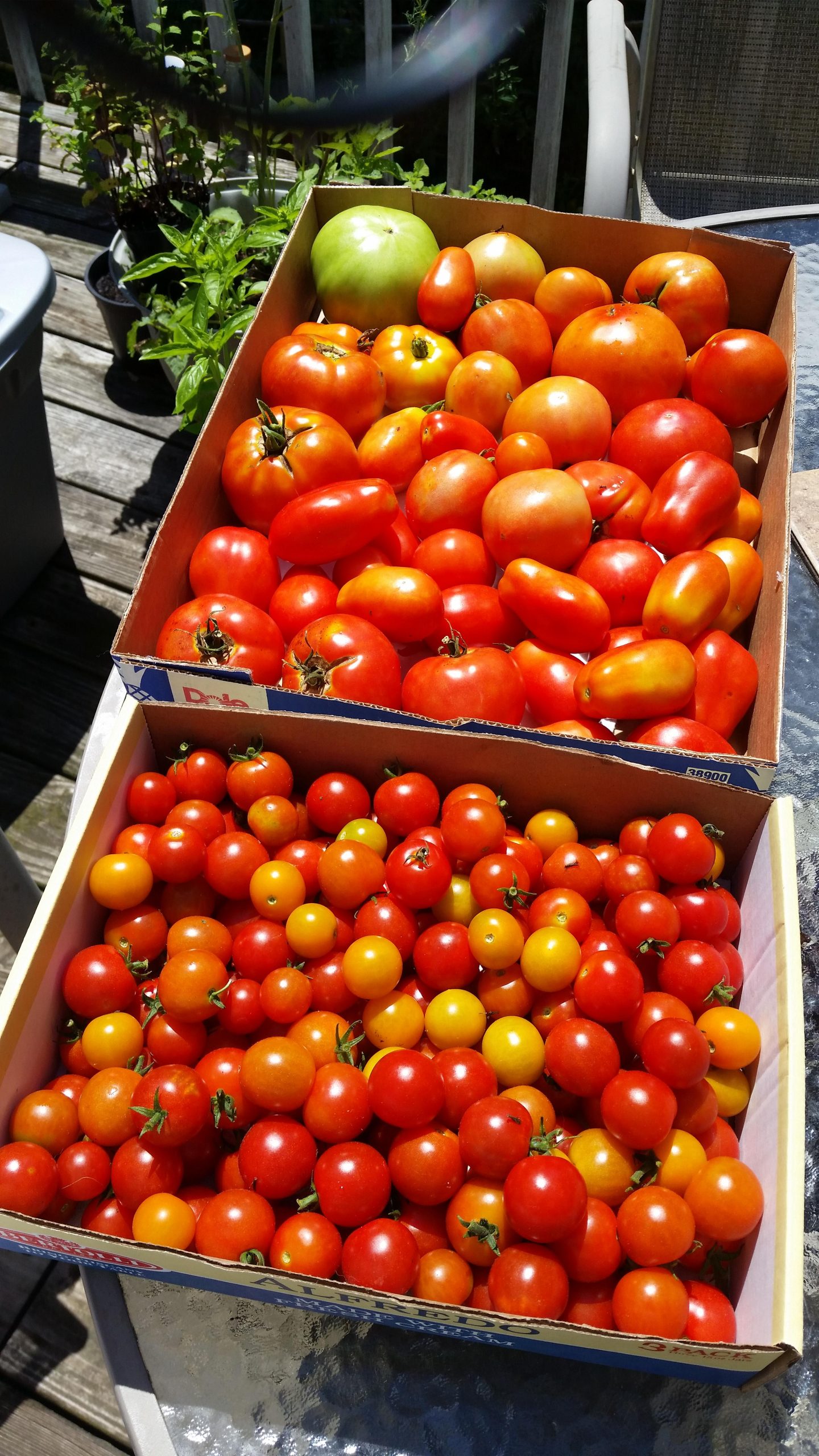
Image source: Reddit
Tomatoes can become contaminated with pathogens such as Salmonella or E. coli through various means, including contact with contaminated soil, water, or improperly composted manure. Improper handling during harvesting, transportation, or processing can also contribute to contamination.
2. The humble potato - yes, seriously!
 Image source: Reddit
Image source: Reddit
If potatoes are stored in warm temperatures or exposed to light for extended periods, they can develop a toxic compound called solanine. Solanine is a natural defense mechanism of the potato plant and can cause gastrointestinal discomfort or even poisoning in humans if consumed in large amounts.
3. Hot dogs may be hiding a secret

Image source: Reddit
Hot dogs, if not cooked thoroughly or stored at the correct temperature, can harbor Listeria monocytogenes, a bacterium that can cause severe illness, particularly in pregnant women, newborns, older adults, and individuals with weakened immune systems.
4. Healthy can of tuna - or not?
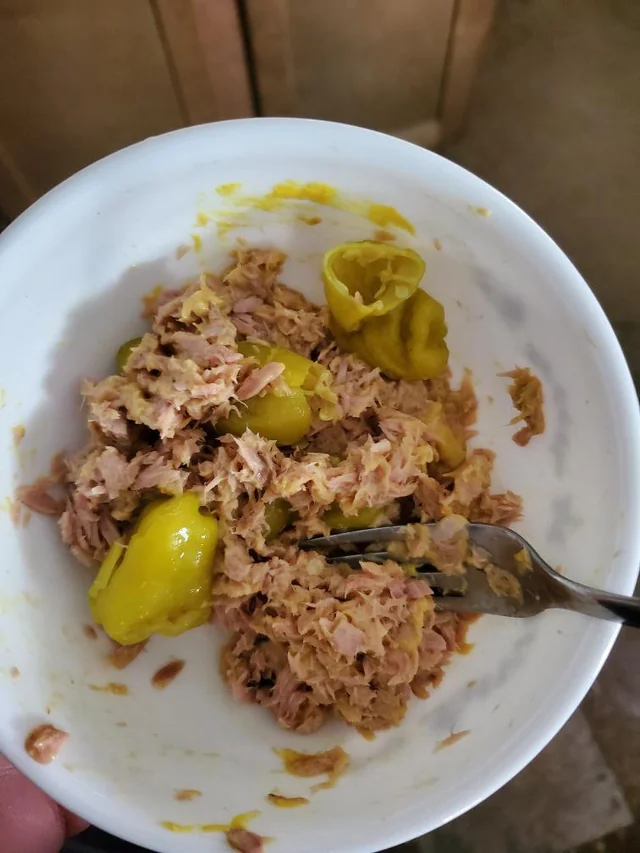
Image source: Reddit
Certain types of tuna, especially larger predatory fish like swordfish, king mackerel, and certain species of tuna such as bluefin, can accumulate high levels of mercury due to bioaccumulation in their flesh. Consuming tuna contaminated with high levels of mercury can lead to mercury poisoning, which can cause neurological problems.
5. Canned foods - watch out for the signs!
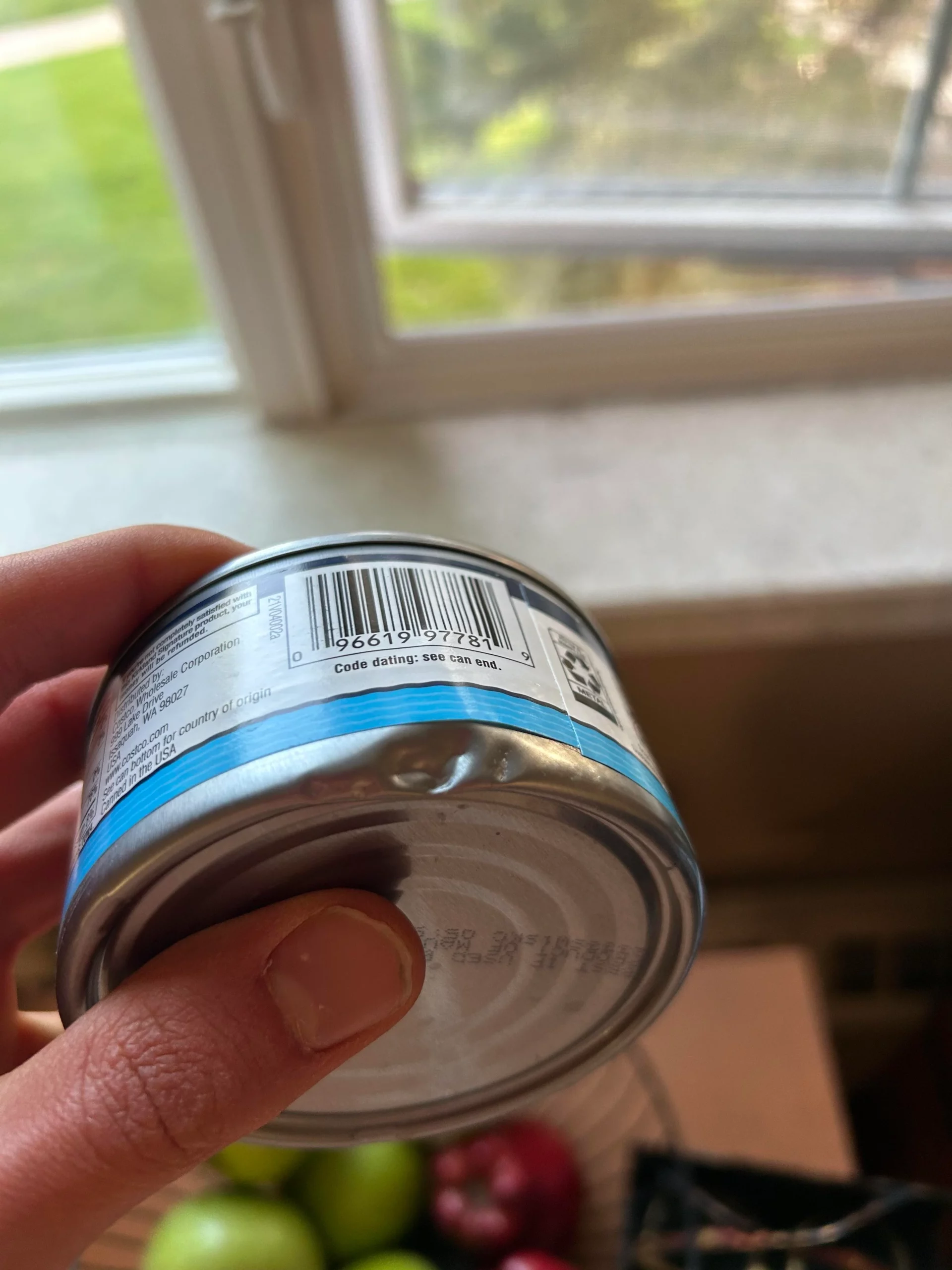
Image source: Reddit
Damaged or bulging canned goods can be indicative of botulism, a serious illness caused by the bacterium Clostridium botulinum. Botulinum toxin, produced by the bacterium under anaerobic conditions, can cause muscle paralysis and respiratory failure if ingested.
6. Herbal teas could be toxic
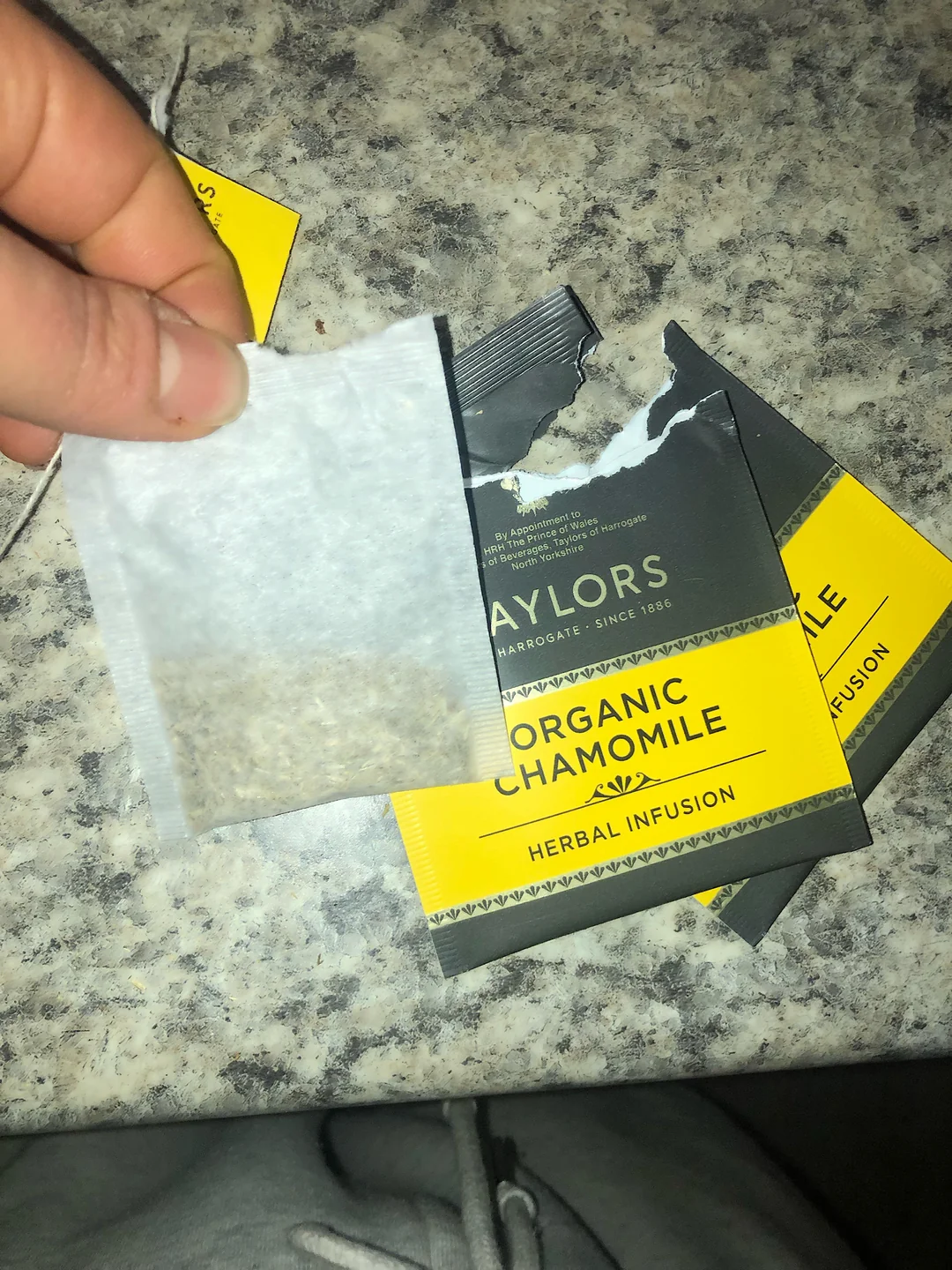
Image source: Reddit
Some herbal teas, such as those made from comfrey, may contain alkaloids that can be toxic if consumed excessively. Alkaloids are naturally occurring compounds found in certain plants that can have adverse effects on human health if ingested in large quantities. It's important to consume herbal teas in moderation.
7. Store-bought guacamole - think before you buy
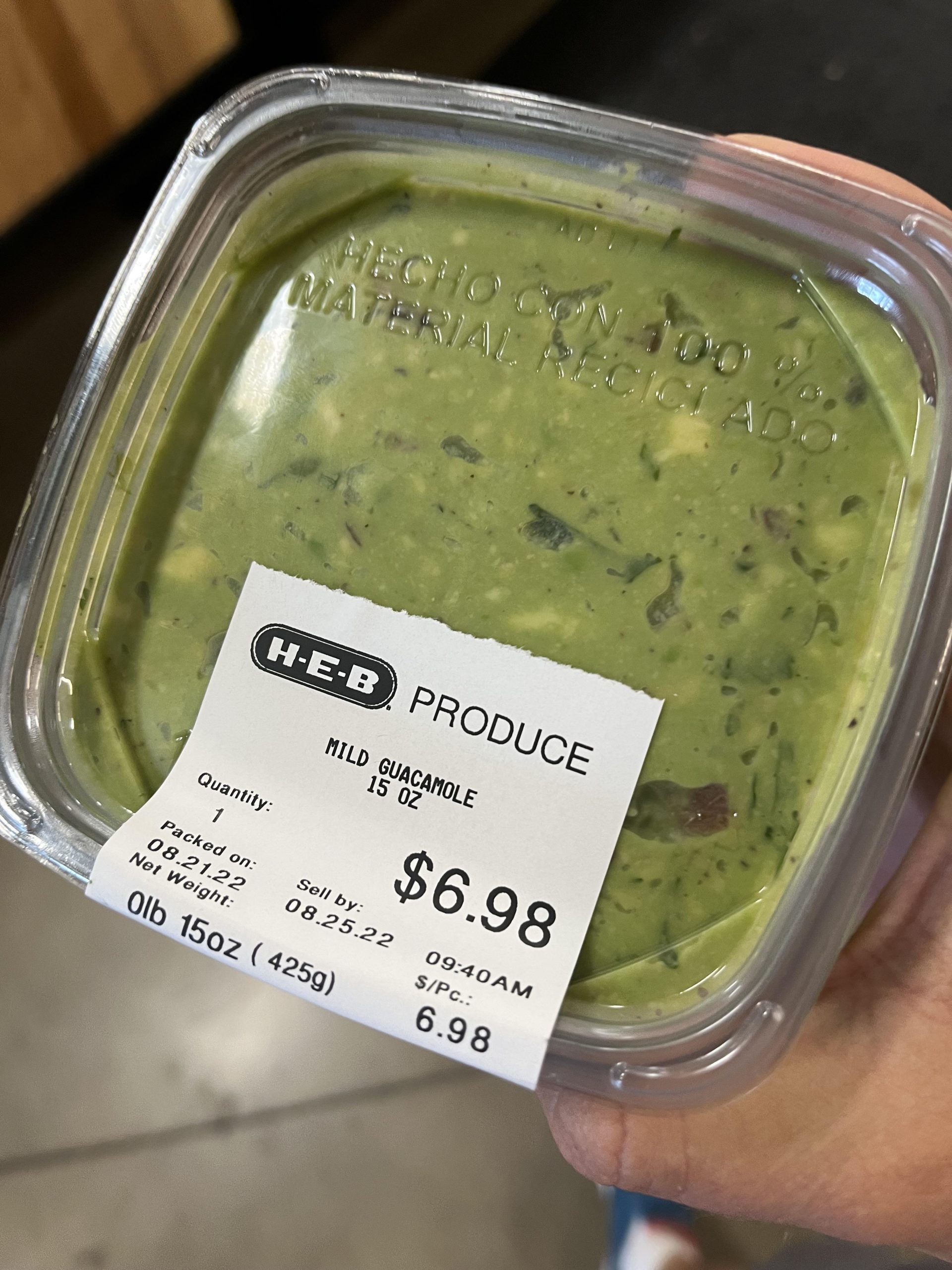
Image source: Reddit
Store-bought guacamole can contain bacteria like Listeria if not stored at the correct temperature or if the packaging is compromised. Listeria monocytogenes can grow in refrigerated foods, especially if they are not stored at the proper temperature or if the packaging is damaged.
8. You can't beat home made casseroles - is this right?

Image source: Reddit
Casseroles made with ingredients like meat, eggs, and dairy products can harbor bacteria if not cooked and stored properly. Improper cooking and storage of casseroles can allow bacteria to multiply and cause foodborne illness. It's important to cook casseroles to the appropriate internal temperature and to refrigerate leftovers promptly.
9. Leftover pasta could cause food poisoning

Image source: Reddit
Pasta dishes containing creamy sauces or meat can harbor bacteria like Bacillus cereus if not stored and reheated properly. When cooked pasta is left at room temperature for an extended period, spores of Bacillus cereus can germinate and produce toxins, leading to foodborne illness if consumed.
10. Sliced fruits and vegetables - convenient but risky
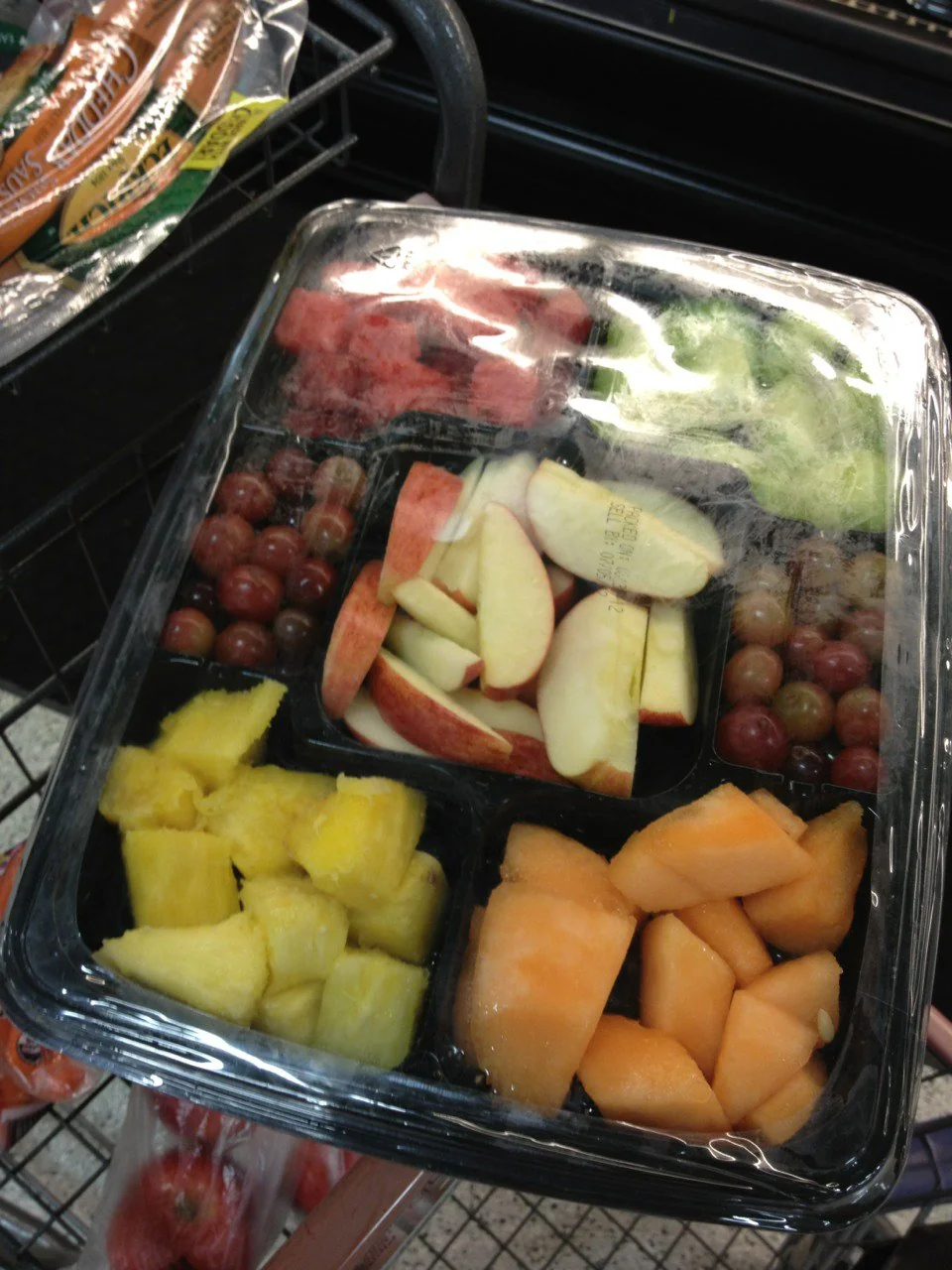
Image source: Reddit
Sliced fruits and vegetables from salad bars or delis can be contaminated with bacteria if not handled and stored properly. Cross-contamination can occur when utensils and surfaces used to prepare sliced fruits and vegetables come into contact with raw meat, poultry, or seafood.
11.
Chili peppers can carry Salmonella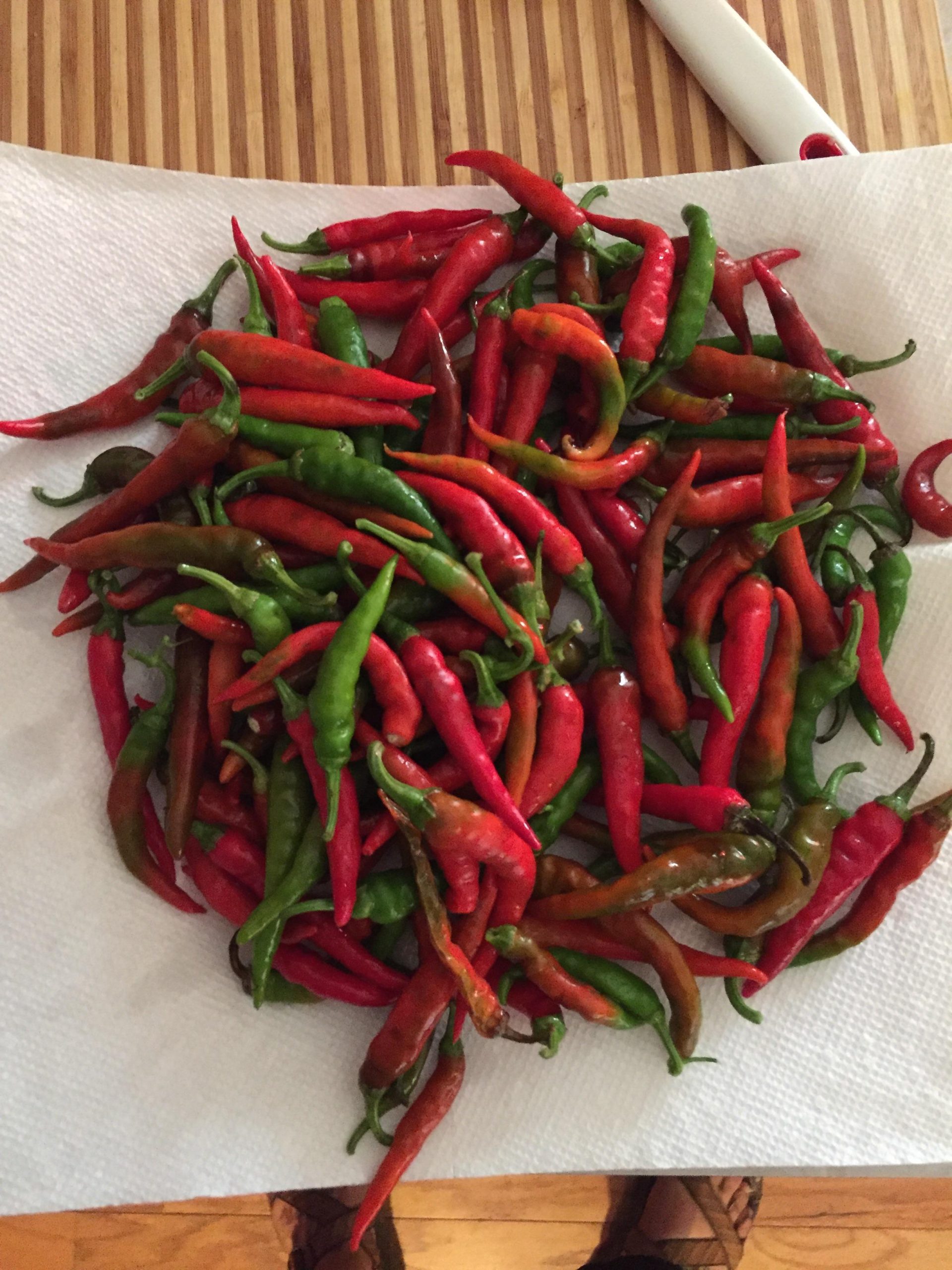
Image source: Reddit
While chili peppers themselves are not typically associated with foodborne illness, they can become contaminated with bacteria like Salmonella or E. coli if they are grown in unsanitary conditions or handled improperly during harvesting, processing, or storage.
12. Rice at room temperature is a no-no

Image source: Reddit
Bacillus cereus, a bacterium commonly found in soil, can produce toxins that cause food poisoning if rice is stored at room temperature for too long. When rice is cooked and then left out at room temperature, spores of this bacterium can germinate, leading to the production of toxins.
13. Where are your store-bought salads actually being prepared?
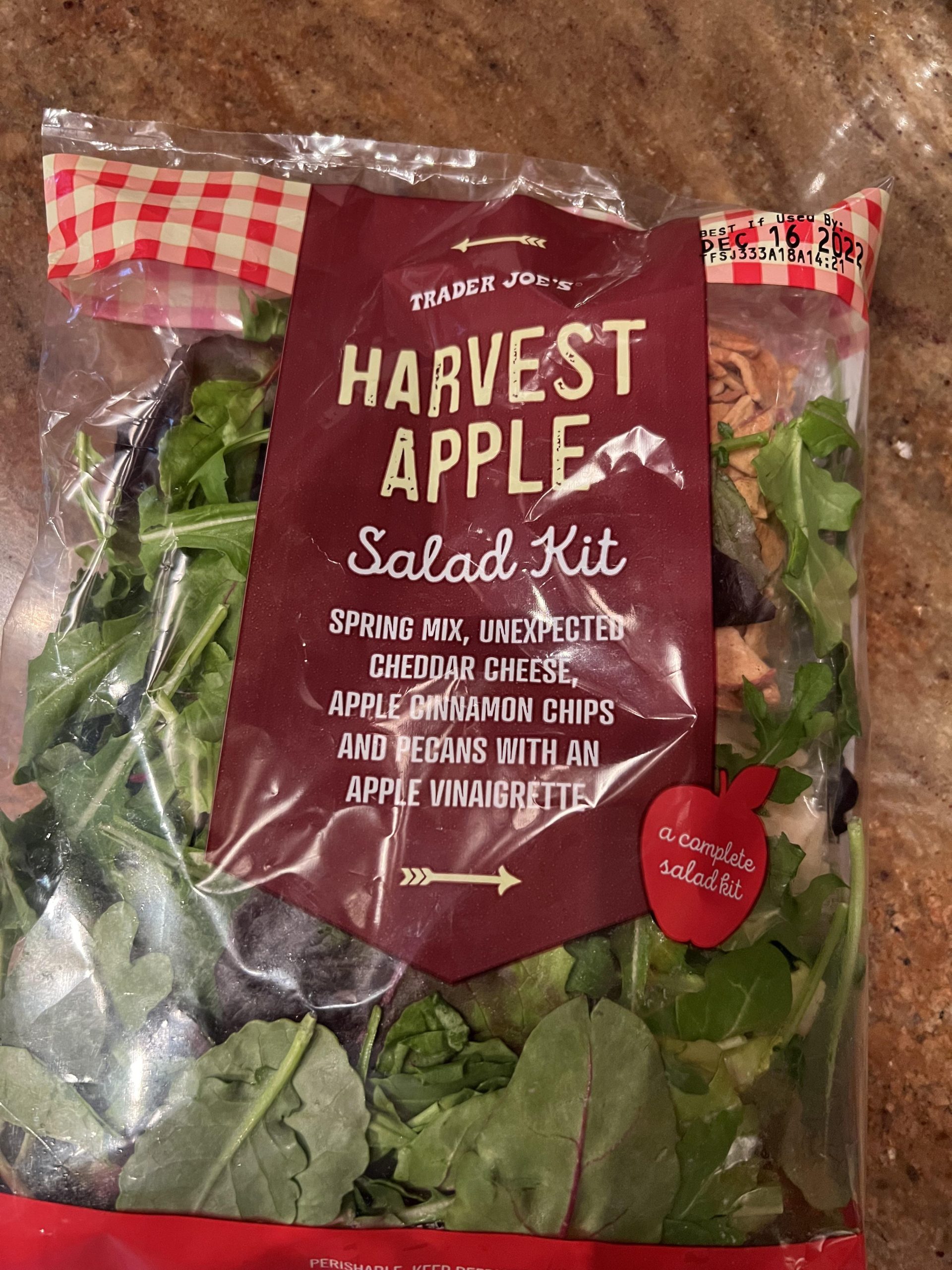 Image source: Reddit
Image source: Reddit
Pre-packaged salads from the store can sometimes contain bacteria like Listeria if not stored at the correct temperature. Listeria monocytogenes, a bacterium commonly found in soil and water, can contaminate fresh produce and processed foods like salads if proper food safety measures are not followed during production and storage.
14. Homemade sauces and dressings - beware!
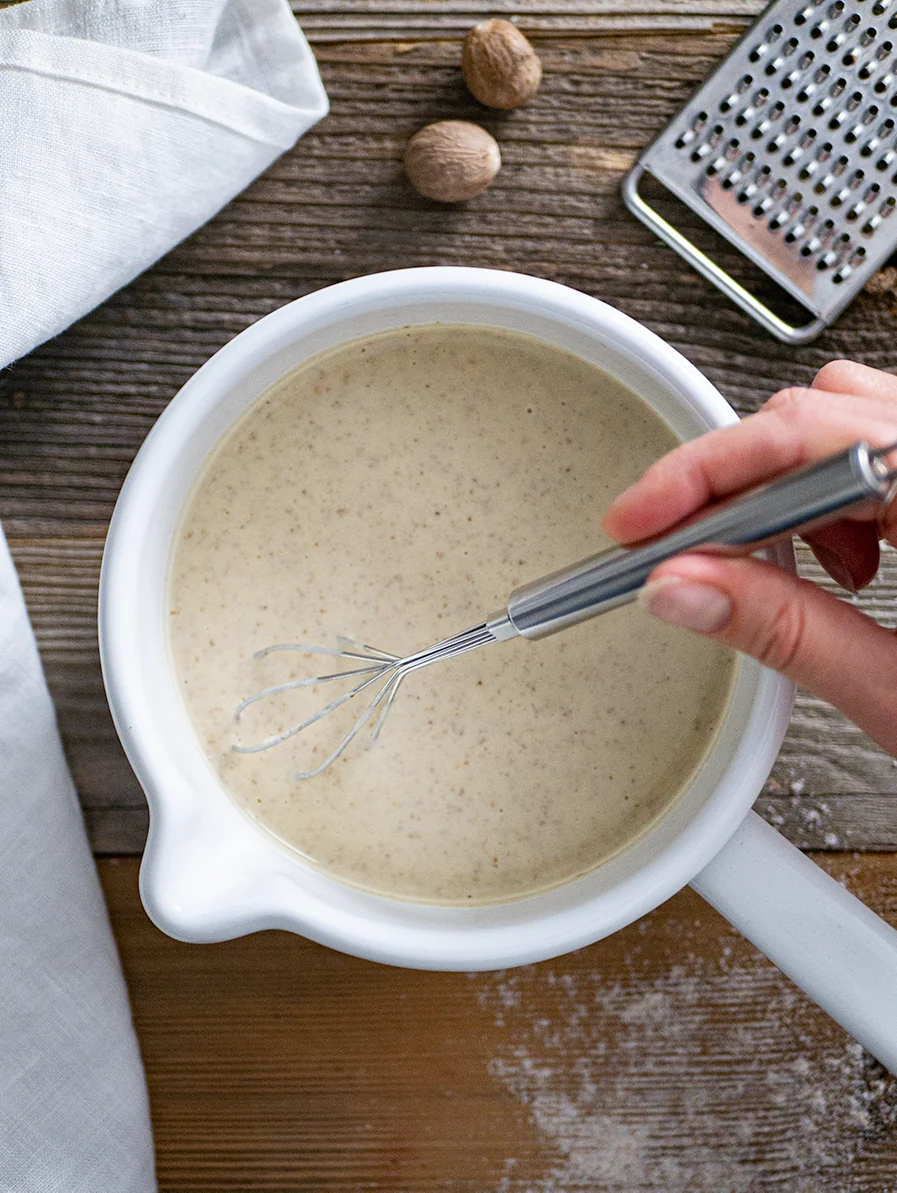
Image source: Reddit
Homemade sauces and dressings that contain raw eggs, such as mayonnaise, can harbor Salmonella bacteria if not properly refrigerated or if left out at room temperature for extended periods. Salmonella contamination can occur if raw eggs are not handled and stored safely during preparation, increasing the risk of foodborne illness.
15. Sliced melons may contain bacteria

Image source: Reddit
Melons, like cantaloupe, can contain harmful bacteria like Salmonella if not properly washed and stored before slicing. Bacteria present on the surface of the melon can be transferred to the inner flesh during slicing, increasing the risk of foodborne illness if consumed.
16. Sprouts can easily become contaminated
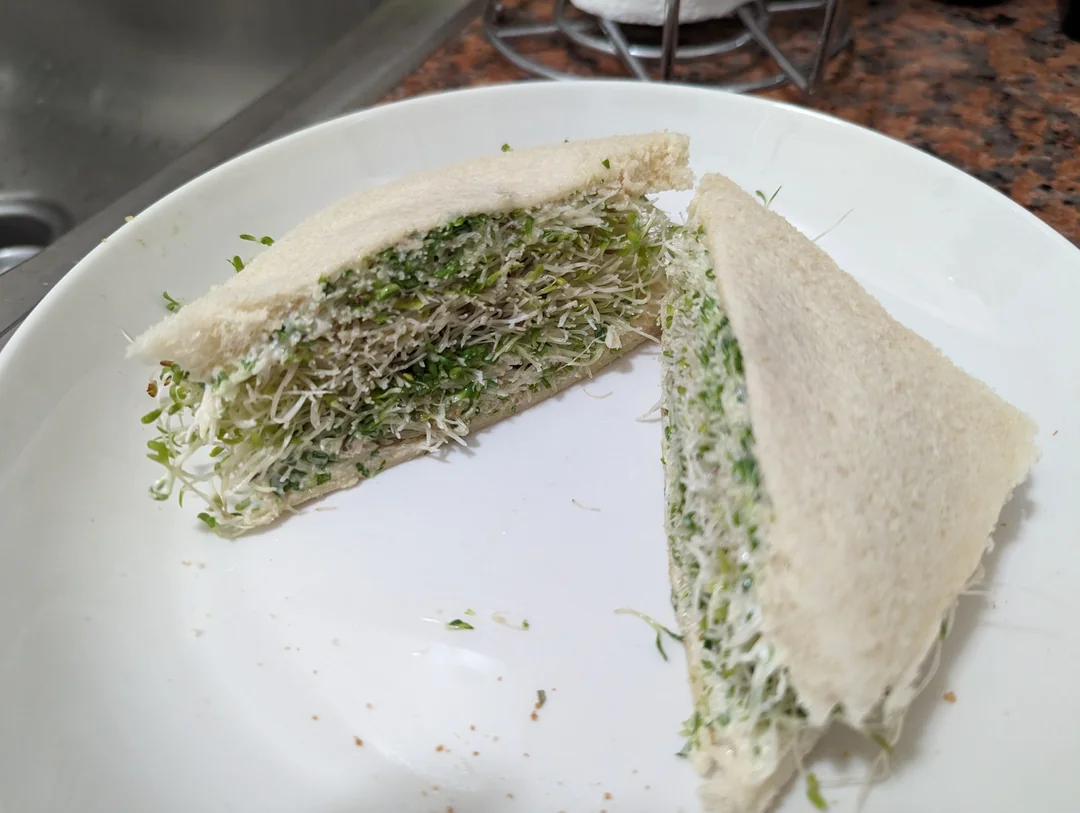
Image source: Reddit
Sprouts, including bean sprouts and alfalfa sprouts, are often associated with foodborne illnesses because they are typically grown in warm, humid conditions ideal for bacterial growth. Sprouts can easily become contaminated with bacteria like Salmonella, E. coli, and Listeria during the sprouting process.
17. Reusable shopping bags - you need to read this

Image source: Reddit
While not a food itself, reusable shopping bags can harbor bacteria from food spills and contamination, especially if they are not cleaned regularly. Cross-contamination can occur when these bags come into contact with raw meat, poultry, or other perishable items.
18. Follow the rules for cooking ground meat!
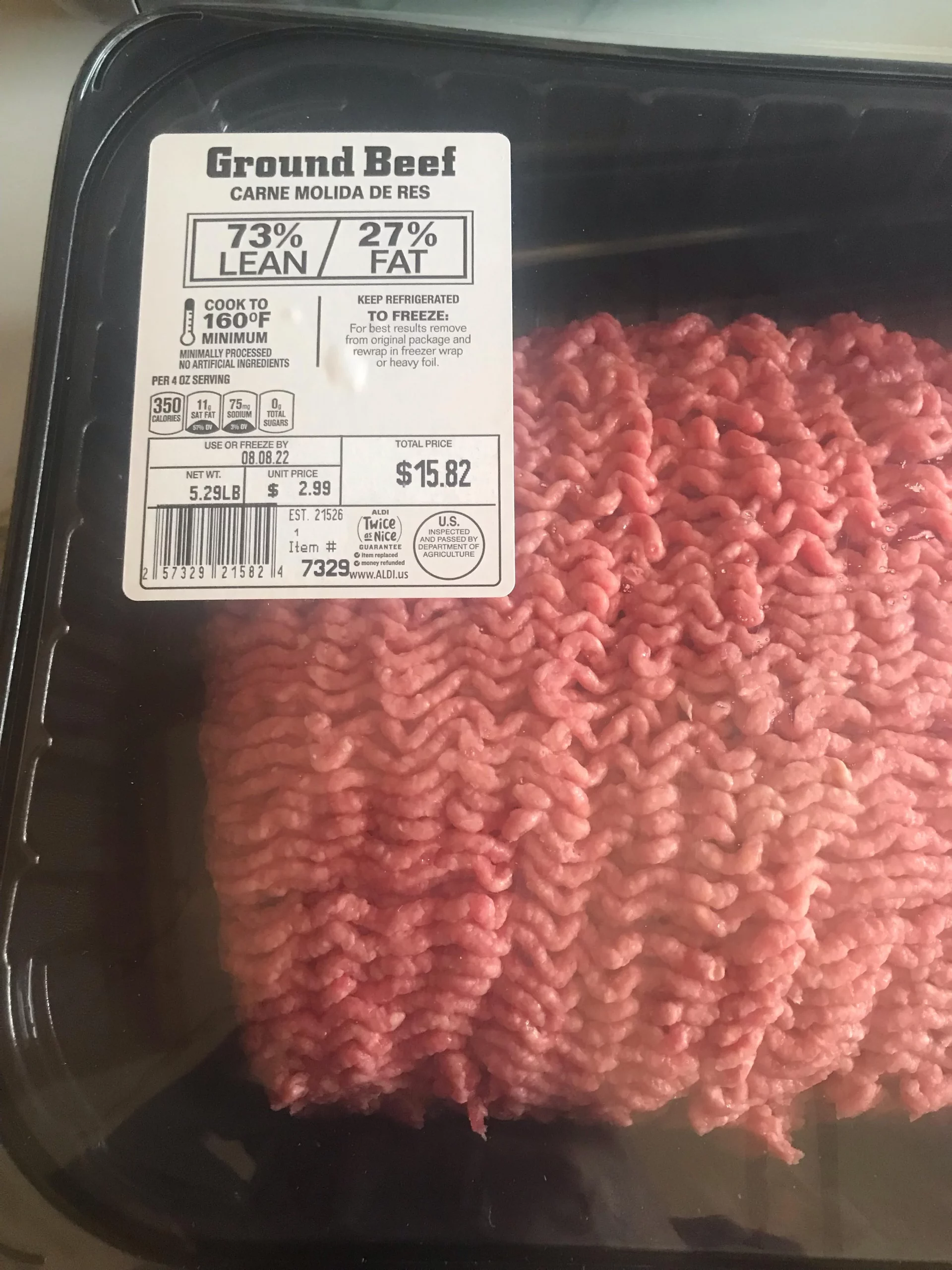
Image source: Reddit
Ground meat, such as beef or chicken, can harbor bacteria like E. coli and Salmonella if not cooked to the proper temperature. Bacteria present on the surface of meat can be mixed throughout ground meat during the grinding process, increasing the risk of foodborne illness if the meat is not cooked thoroughly.
19. Homemade elderflower cordial is delicious unless it's made incorrectly
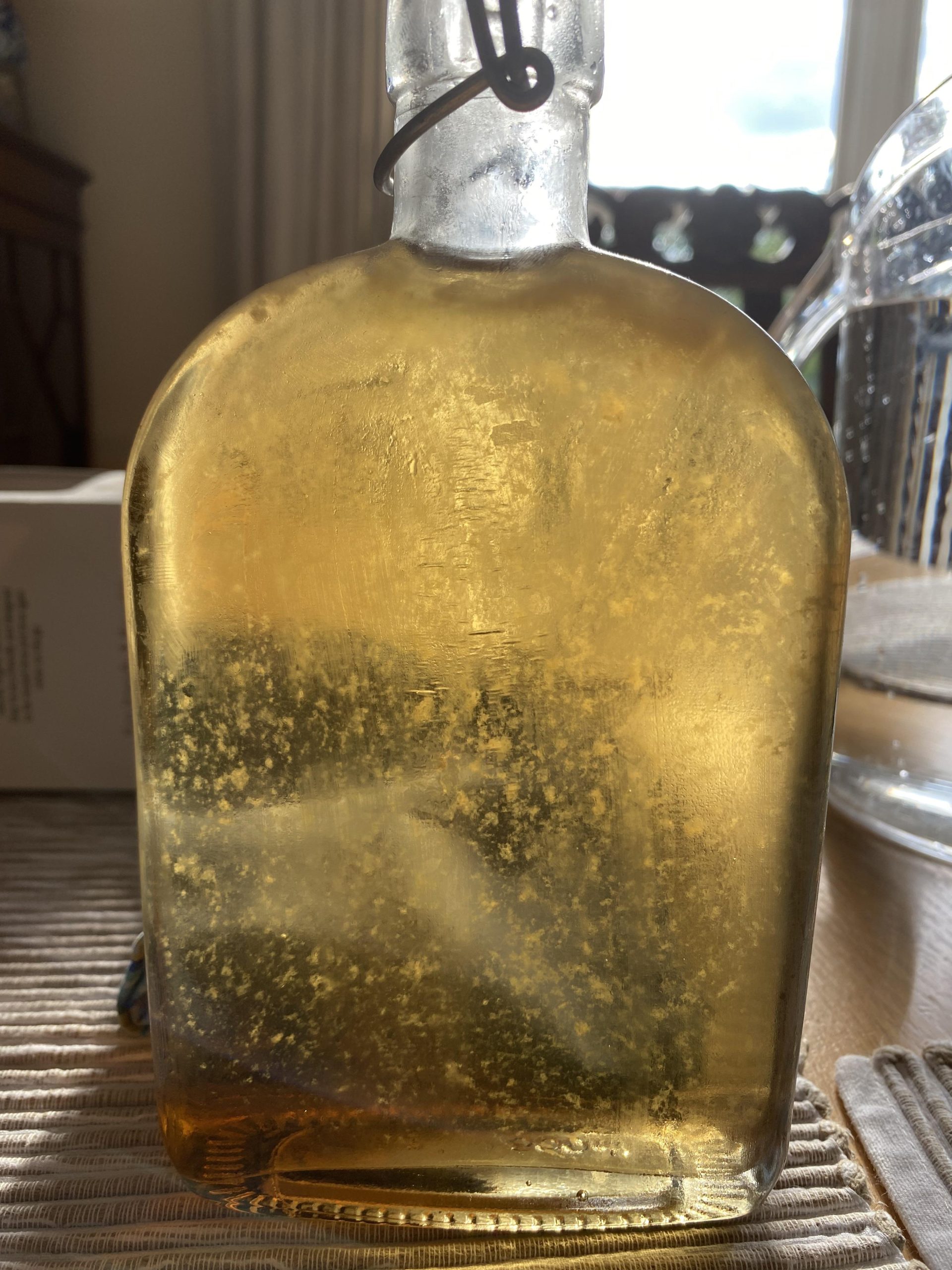
Image source: Reddit
Homemade elderflower cordial can contain toxic components if made incorrectly. Elderflowers themselves are generally safe for consumption, but improper preparation methods or the addition of other ingredients can lead to the presence of toxins or harmful substances in the cordial.
20. DON'T feed young kids raw honey
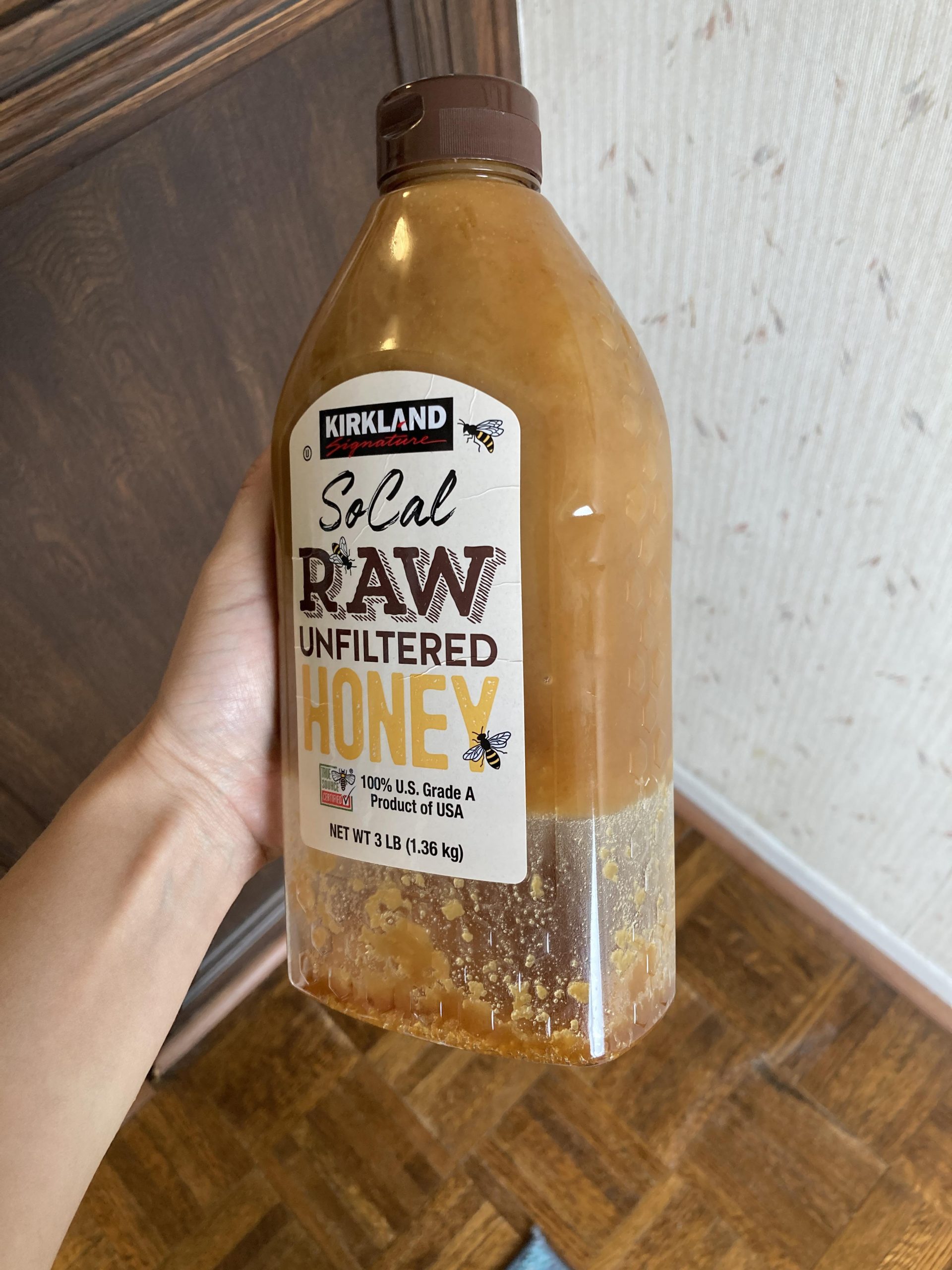
Image source: Reddit
Raw honey, although rare, can contain spores of Clostridium botulinum, a bacterium that produces botulinum toxin, which can cause botulism in infants under one year of age whose digestive systems are not fully developed. Only feed to children over 3 to be on the safe side.
21. Nutmeg could give you nutmeg poisoning!
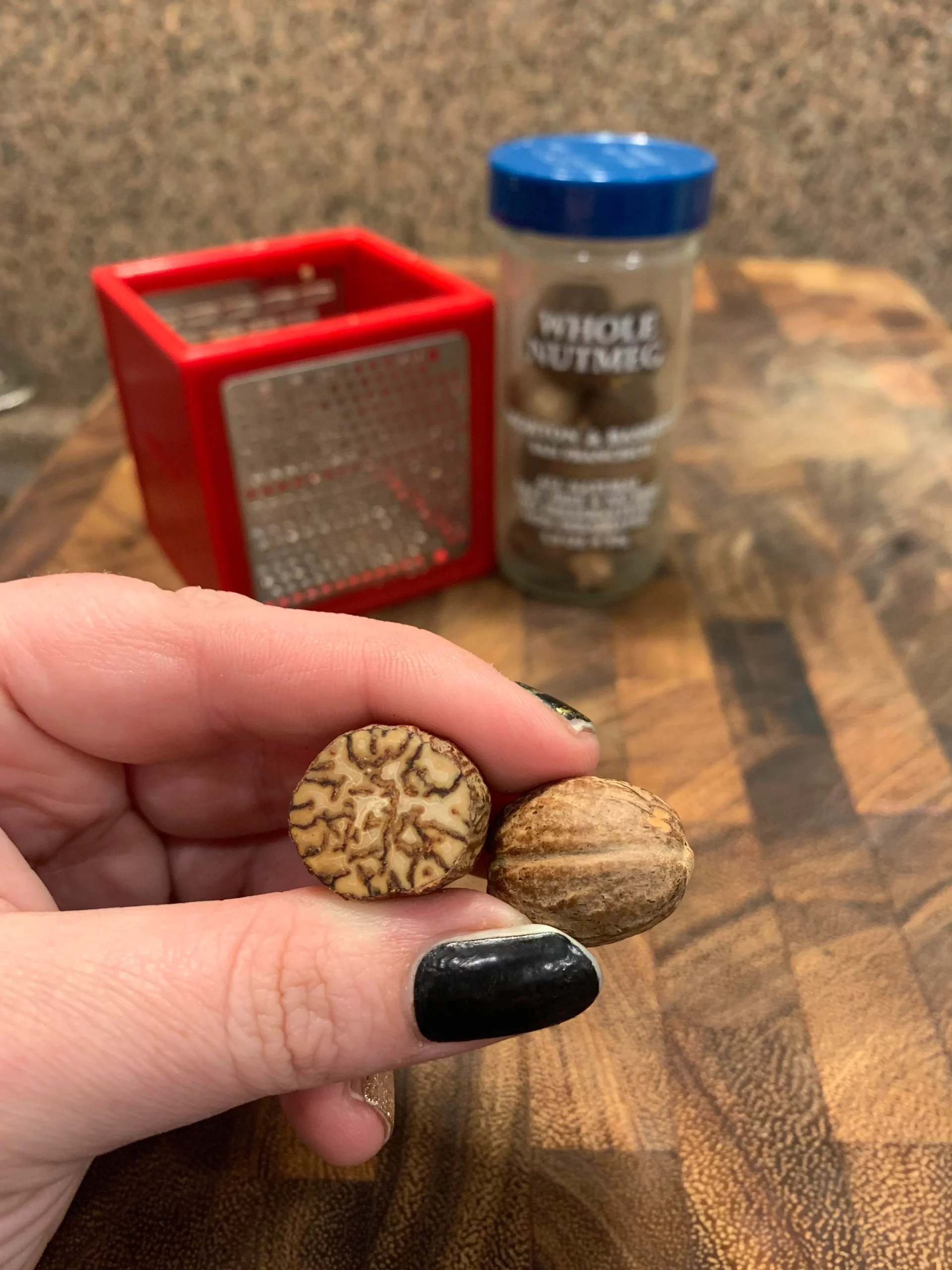
Image source: Reddit
Consuming large amounts of nutmeg can cause nutmeg poisoning, also known as myristicin poisoning. Nutmeg contains compounds like myristicin and elemicin, which in large doses can cause symptoms such as nausea, hallucinations, dizziness, abdominal pain, and convulsions.
22. Don't be to green about spinach
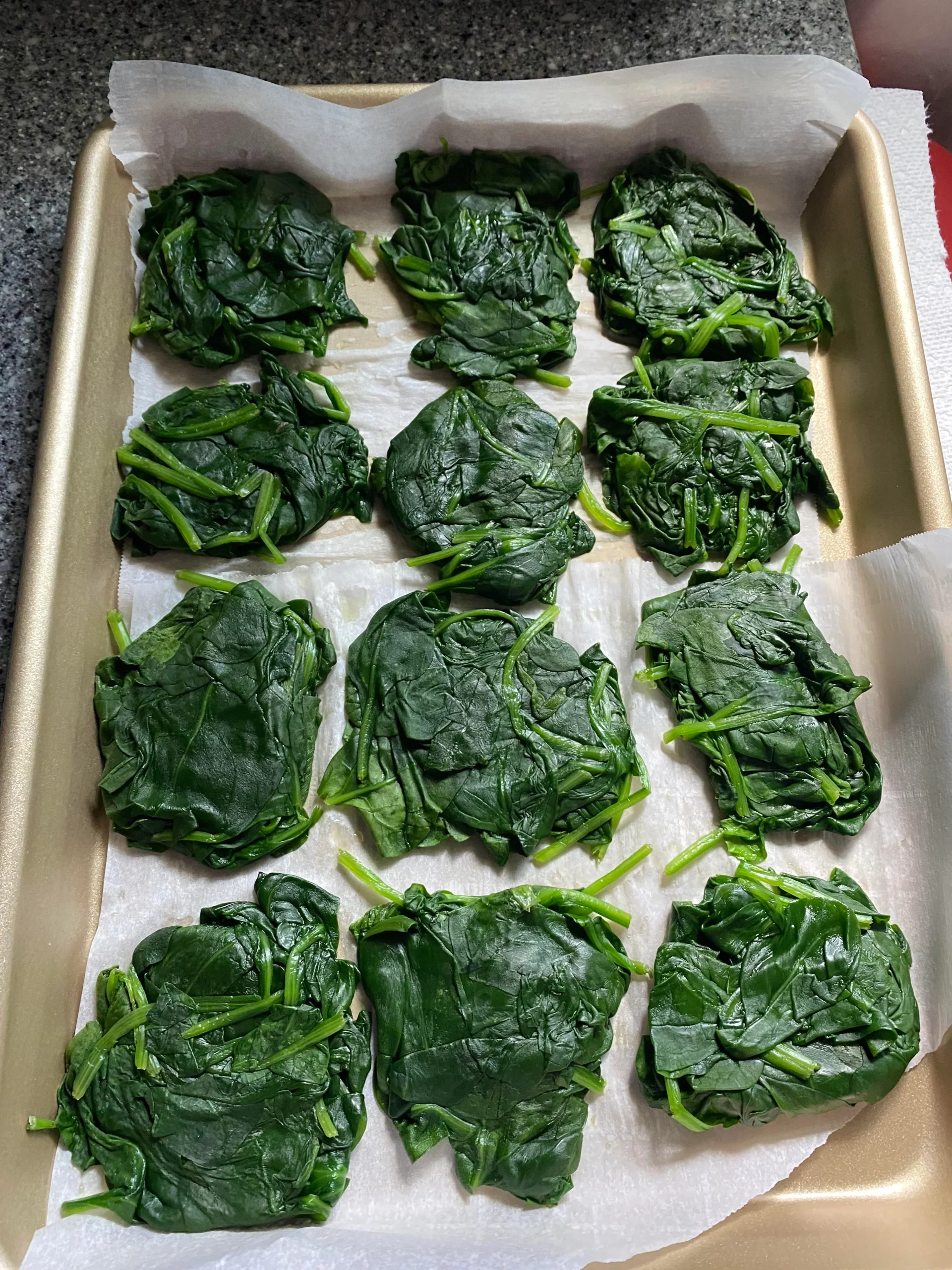
Image source: Reddit
Leafy greens such as healthy spinach and crispy lettuce can harbor harmful bacteria such as E. coli and Salmonella, especially if these greens are grown in contaminated soil or if they are exposed to contaminated water during the irrigation process.
23. Elderberries shouldn't be eaten raw

Image source: Reddit
Lot of individuals do not realize that raw elderberries contain cyanogenic glycosides, which can release cyanide when consumed in large quantities. While cooking elderberries can neutralize the cyanide, consuming them raw or improperly prepared can pose a risk of poisoning.
24. Where do we start with shellfish?
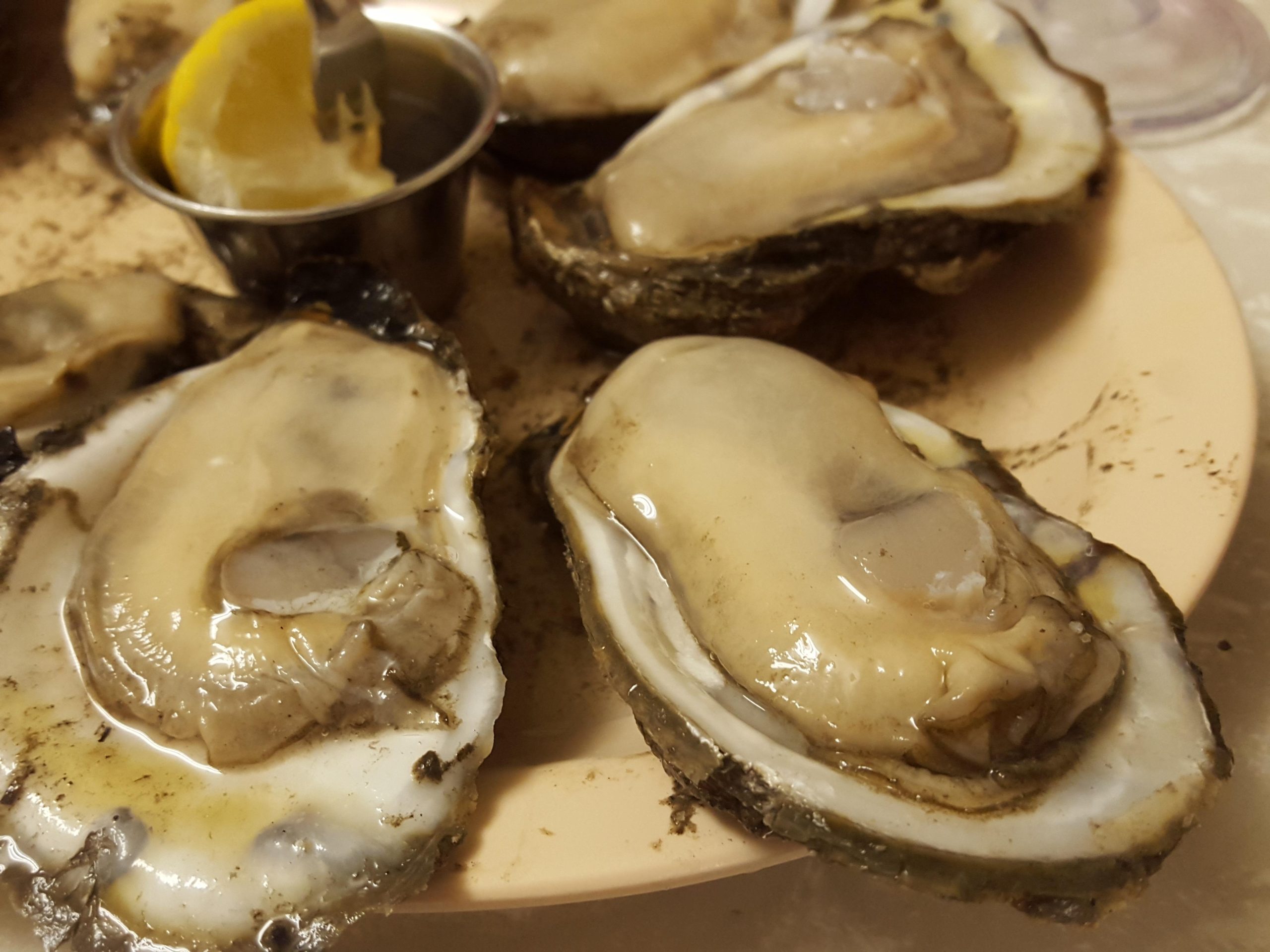
Image source: Reddit
Shellfish like oysters, clams, and mussels are filter feeders, meaning they filter water to obtain nutrients. As a result, they can accumulate bacteria like Vibrio vulnificus, Vibrio parahaemolyticus, and Vibrio cholerae, especially in warm coastal waters. Consumption of raw or undercooked shellfish contaminated with these bacteria can cause gastrointestinal illness.
25. Give raw milk a miss
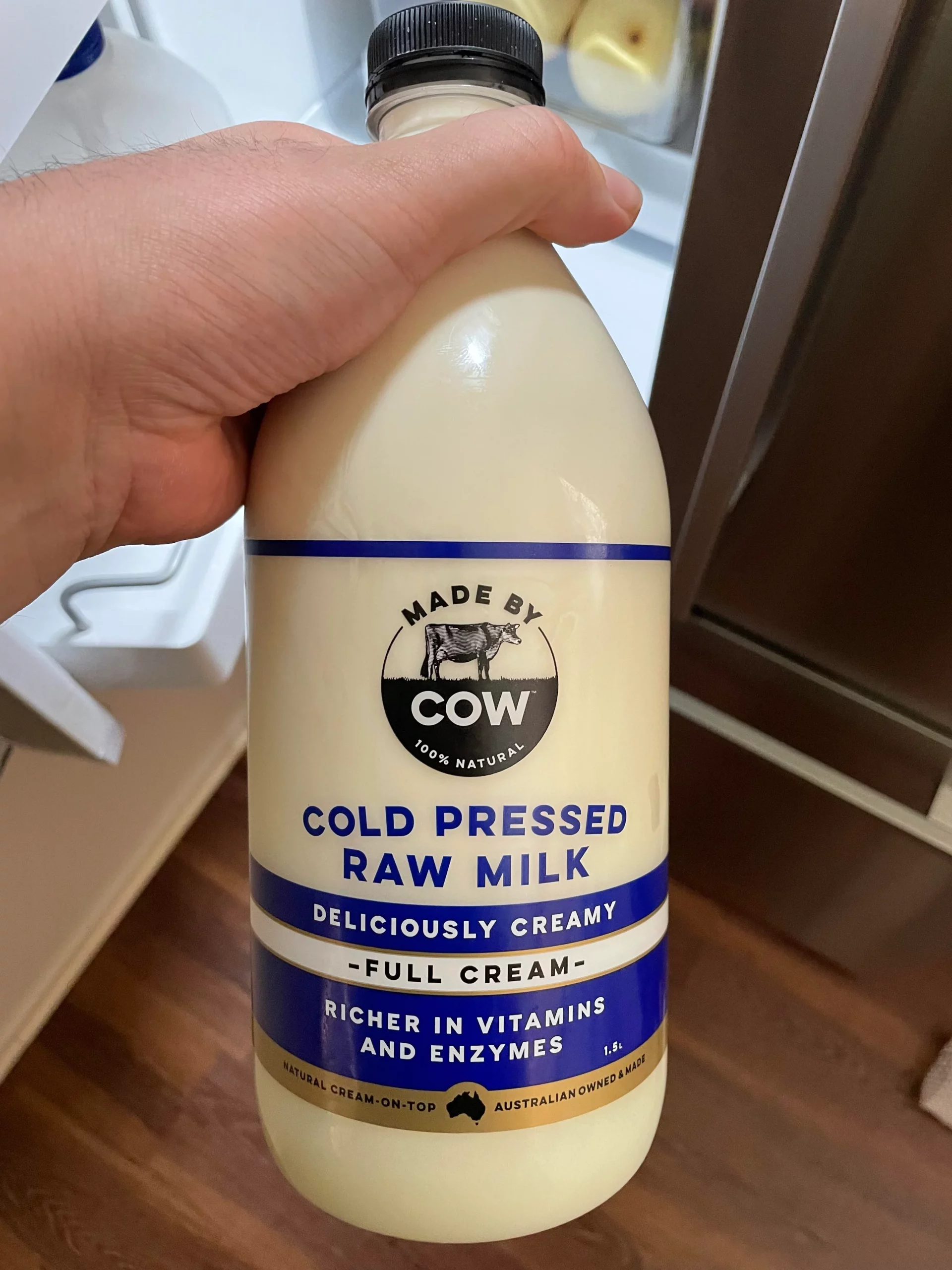
Image source: Reddit
Raw milk can contain harmful bacteria such as Salmonella, E. coli, and Listeria monocytogenes, which can cause serious illness, particularly in vulnerable populations such as young children, pregnant women, the elderly, and individuals with weakened immune systems. Only drink pasteurized.
26. Rhubarb leaves shouldn't be cooked with the stalks
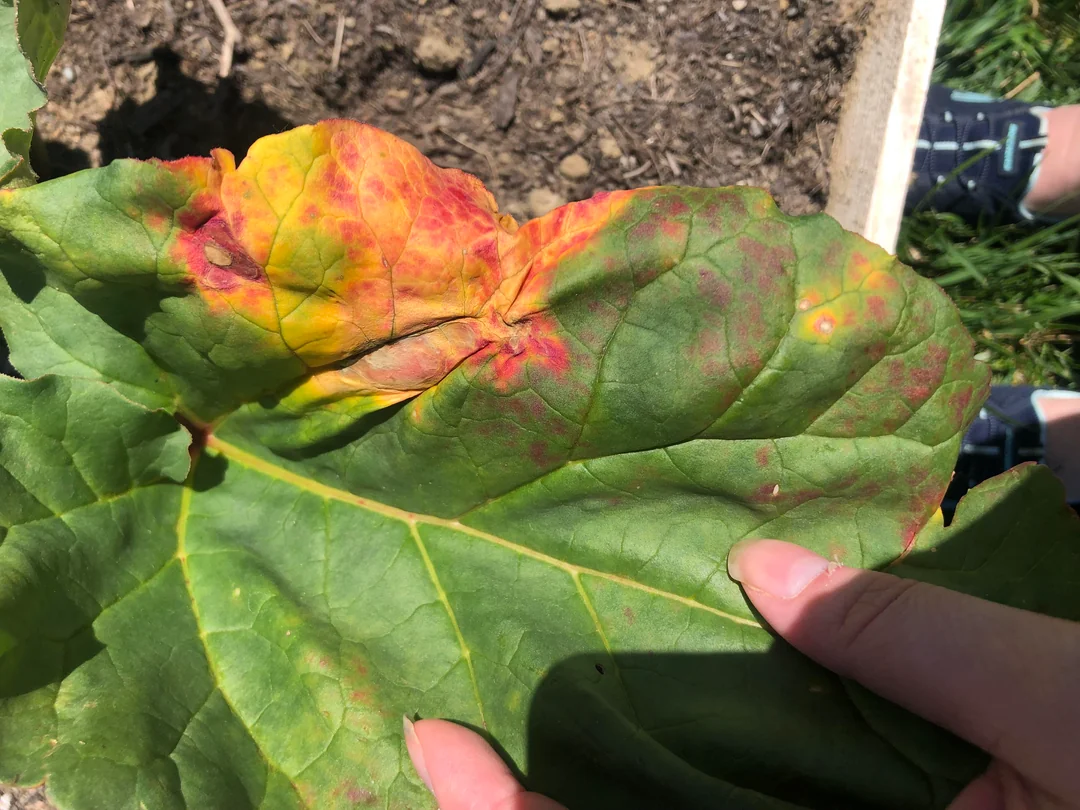
Image source: Reddit
Rhubarb leaves contain oxalic acid and anthraquinone glycosides, which can be toxic if consumed in large amounts. While rhubarb stalks are commonly used in cooking and baking, the leaves should be discarded and not consumed due to their potential toxicity.
27. Ackee fruit could cause vomiting

Image source: Reddit
The seeds and unripe fruit of ackee contain hypoglycin A, a toxin that can cause vomiting sickness or Jamaican vomiting sickness if not prepared properly. Proper preparation involves fully ripening the fruit and discarding seeds and arils containing hypoglycin A.
28. Seafood dishes (e.g. ceviche) - think twice
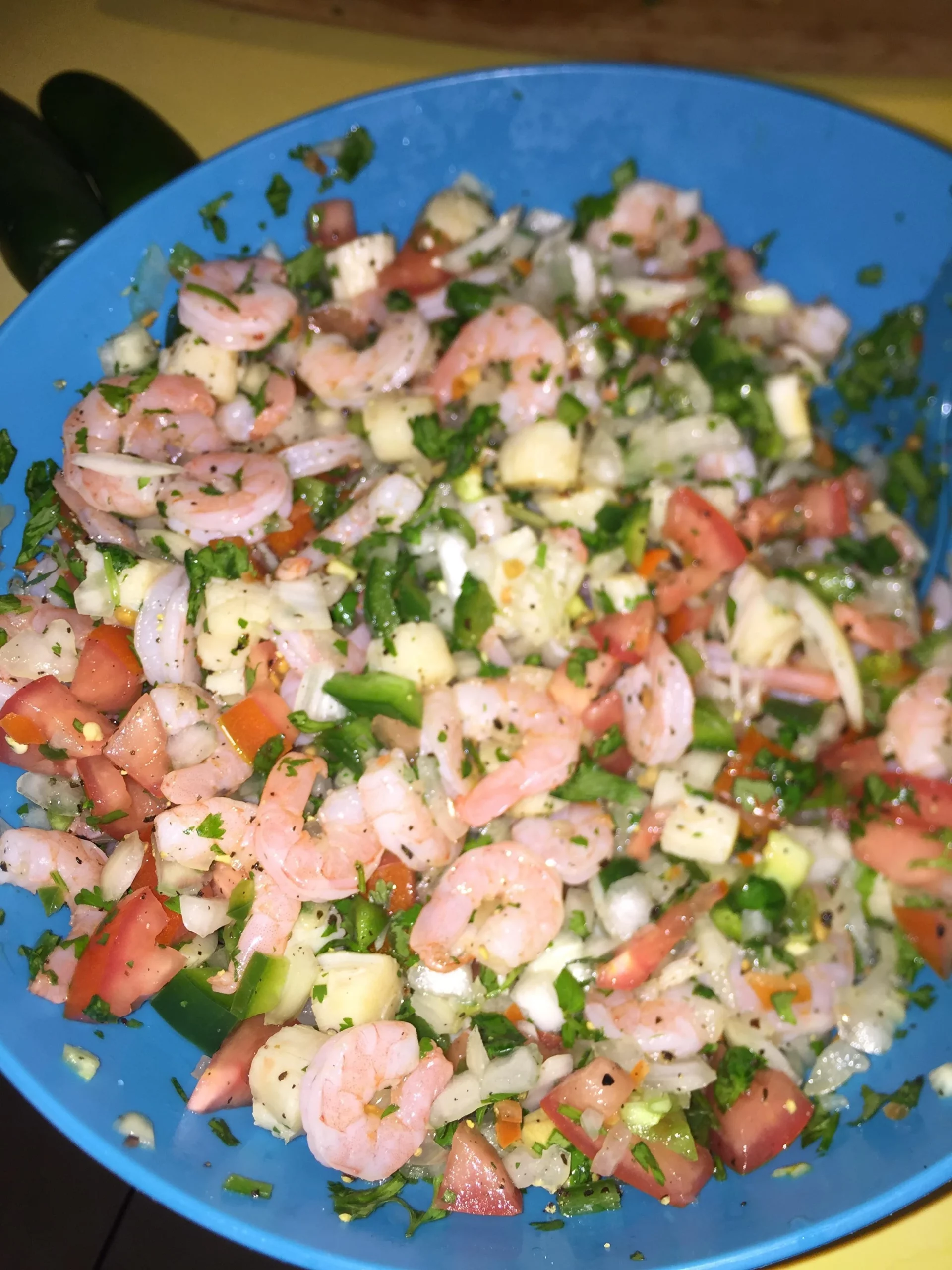
Image source: Reddit
Seafood dishes like ceviche, which typically involve marinating raw fish or shellfish in citrus juices, may not undergo sufficient cooking to kill harmful bacteria and parasites. Consumption of improperly prepared or stored ceviche can lead to foodborne illnesses caused by bacteria, such as Vibrio species, or parasites, such as those causing anisakiasis.
29. Potluck dishes - any number of reasons can cause food poisoning
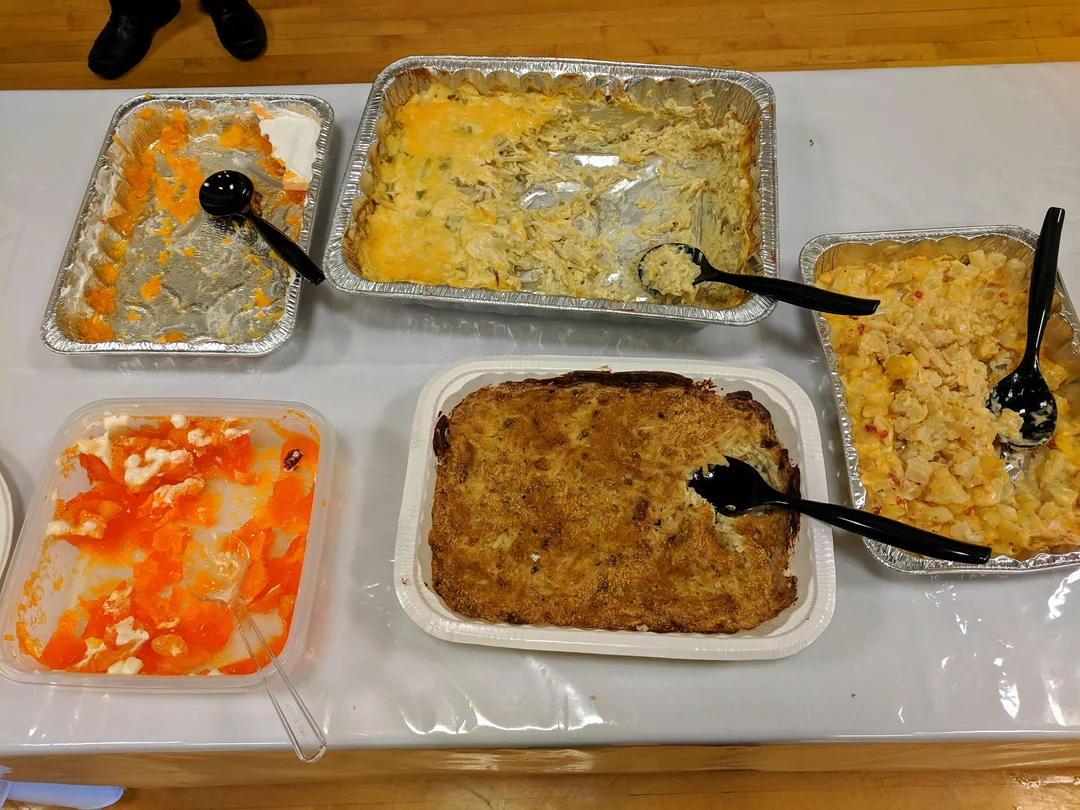
Image source: Reddit
Any dish brought to a potluck can potentially cause food poisoning if not handled, cooked, or stored correctly. Cross-contamination, improper temperature control, and inadequate hygiene practices can all contribute to the risk of foodborne illness associated with potluck dishes. It's important to ensure that food items are prepared safely.
30. Bamboo shoots could cause cyanide poisoning
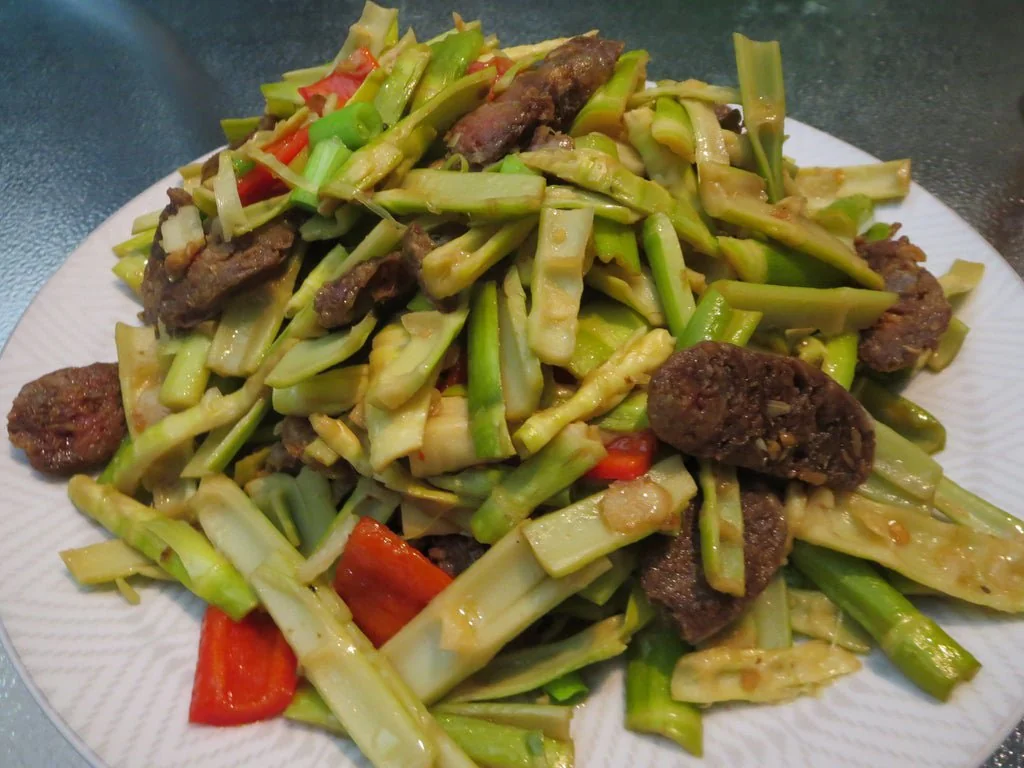
Image source: Reddit
Raw or undercooked bamboo shoots can contain toxins that cause cyanide poisoning. Bamboo shoots naturally contain cyanogenic glycosides, which can release cyanide when ingested. Proper cooking methods, such as boiling or steaming, can help reduce the levels of cyanide in bamboo shoots and make them safe for consumption.
31. Unpasteurized fruit juice could harbor all manner of germs
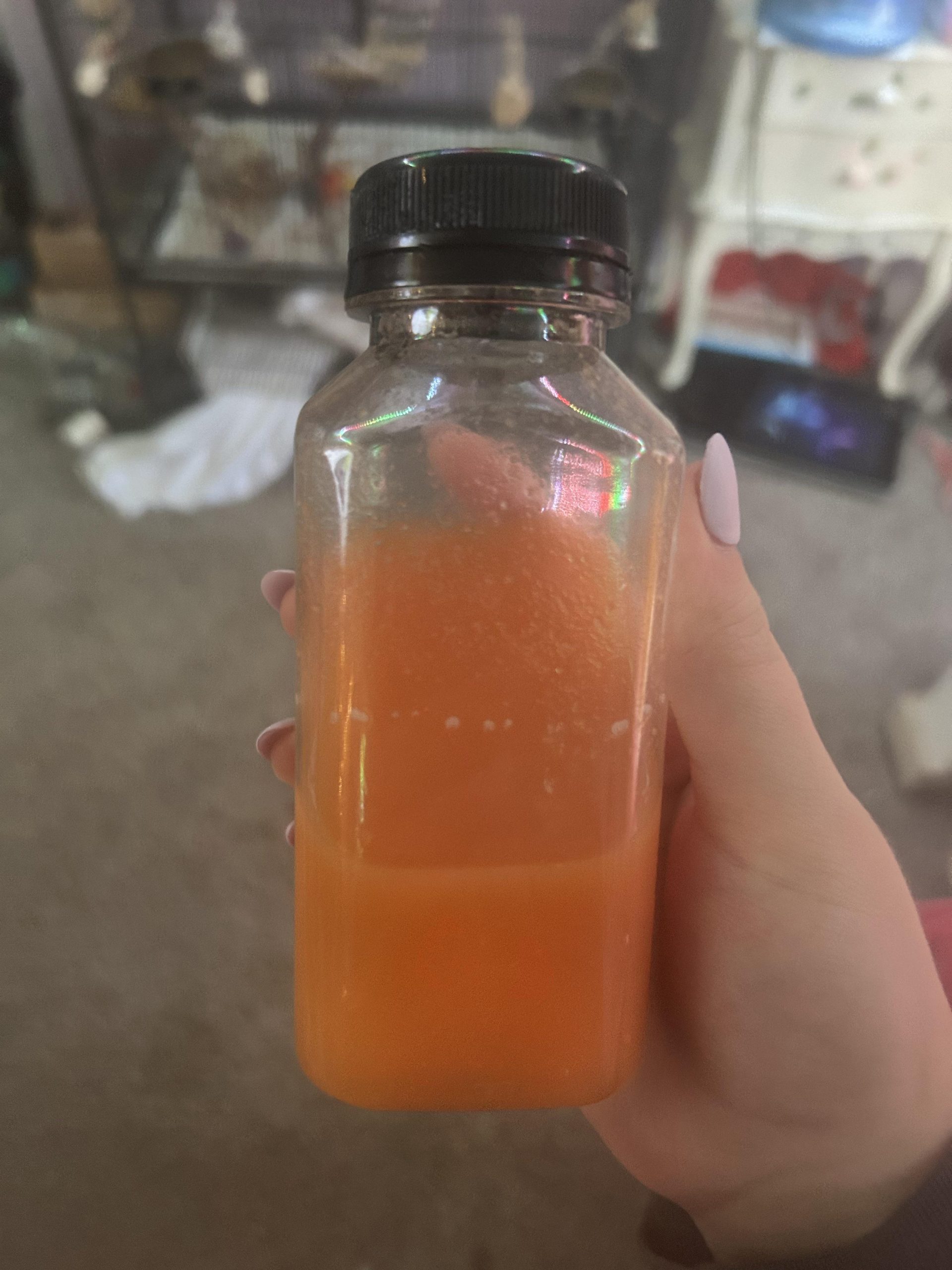
Image source: Reddit
Unpasteurized fruit juice can harbor harmful bacteria like E. coli and Salmonella if not processed using methods that kill pathogens. Pasteurization, a heat treatment process, is commonly used to eliminate harmful bacteria in fruit juice and other beverages. Consuming unpasteurized fruit juice poses a higher risk of foodborne illness.
32. Raw cashews HAVE TO BE properly processed

Image source: Reddit
Raw cashews can contain urushiol, a toxic compound also found in poison ivy, which can cause skin rashes and allergic reactions in susceptible individuals. Urushiol is present in the shell of cashews and can cause irritation if not properly removed during processing. It's essential to ensure that cashews are properly processed.
33. Edible flowers may cause an allergic reaction

Image source: Reddit
Certain edible flowers can cause allergic reactions or gastrointestinal issues if consumed in large quantities or if an individual has specific allergies. While many edible flowers are safe for consumption and used as decorative garnishes in culinary dishes, some individuals may experience adverse reactions due to allergies or sensitivities.
34. Store-bought pre-cut fruits may not be worth it
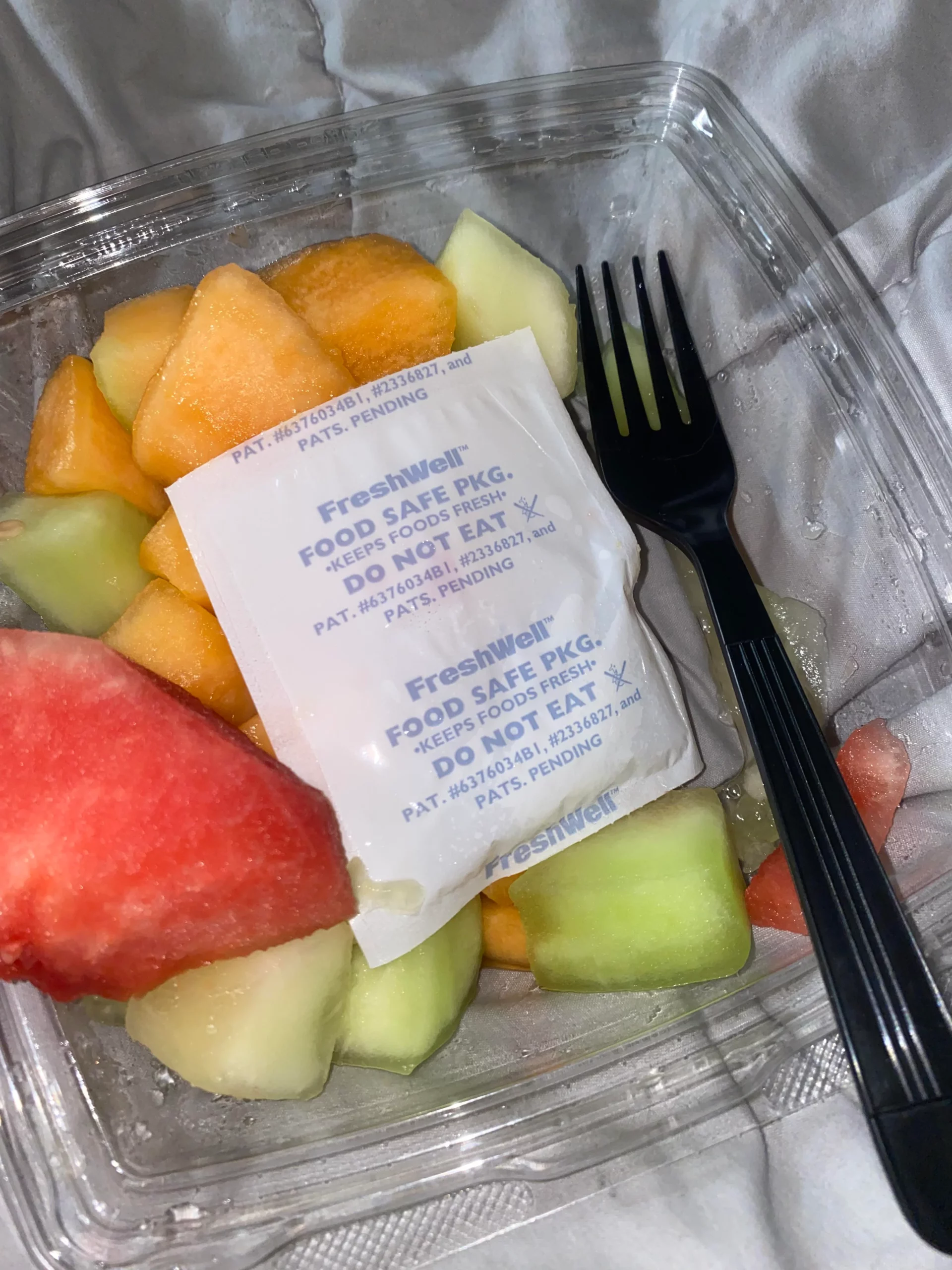
Image source: Reddit
Pre-cut fruits sold at grocery stores can harbor bacteria if they are not stored at the correct temperature or if cutting equipment is not properly sanitized. Cross-contamination can occur during the cutting and packaging process, increasing the risk of bacterial contamination if proper hygiene practices are not followed.
35. Rice noodles - improper storage and you'll be sorry

Image source: Reddit
Similar to rice, rice noodles can become a breeding ground for bacteria like Bacillus cereus if not stored or reheated properly. It's important to store rice noodles in the refrigerator and reheat them to the appropriate temperature to kill any bacteria present and minimize the risk of foodborne illness.
36. Premixed salads - use only as a last resort and be careful
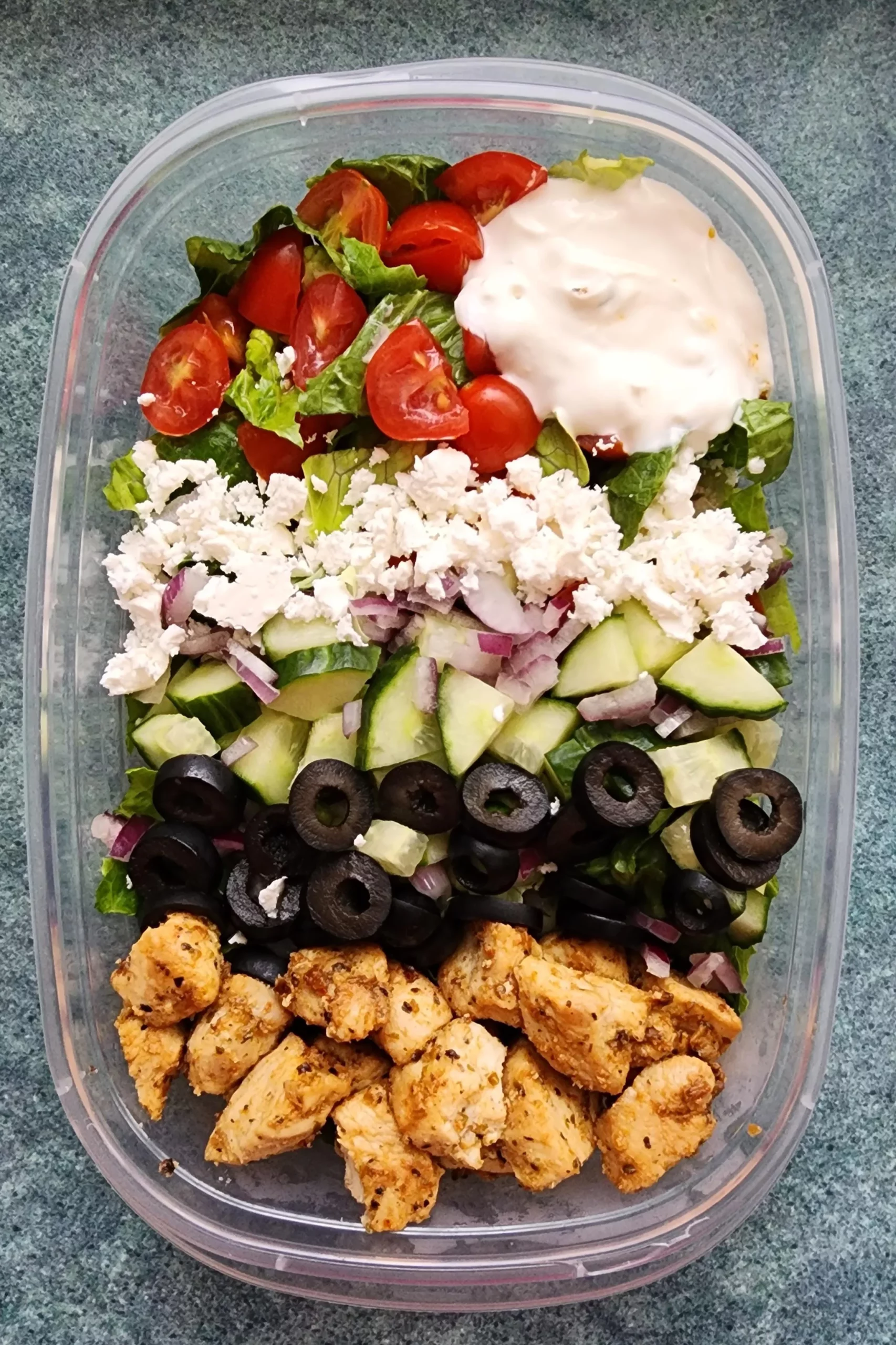
Image source: Reddit
Premixed salads containing ingredients like lettuce, cheese, and dressing can harbor bacteria if not stored at the correct temperature or if they are past their expiration date. Bacteria can multiply in premixed salads if they are not refrigerated promptly or if they are stored beyond their shelf life, increasing the risk of foodborne illness if consumed.
37. Homemade infused oils could have the worse consequences ever
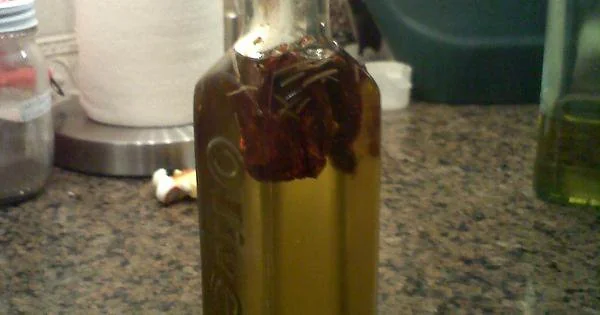
Image source: Reddit
Homemade infused oils can harbor botulism-causing bacteria if not prepared and stored properly. Botulism spores can survive in oil, especially if herbs or other ingredients are added to the oil without proper sterilization techniques. Consuming homemade infused oils contaminated with botulism can lead to severe illness or even death.
38. Unpasteurized cider - pass on it
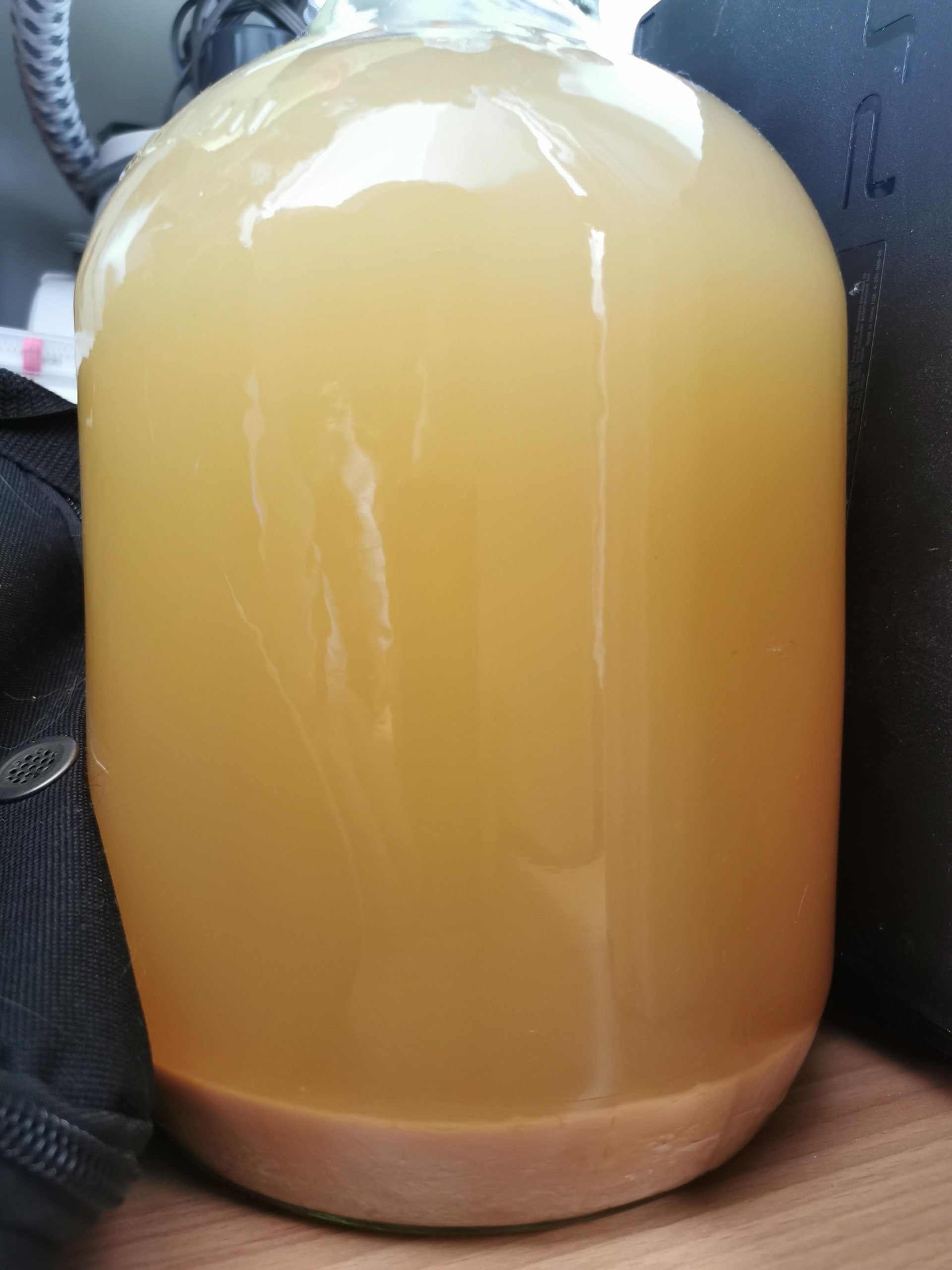
Image source: Reddit
Unpasteurized cider can contain harmful bacteria like E. coli and Salmonella if not processed correctly. Without pasteurization, bacteria present in the apples used to make cider can survive and multiply, posing a risk of foodborne illness if consumed.
39. Tapioca pudding must be cooked THOROUGHLY to avoid food poisoning
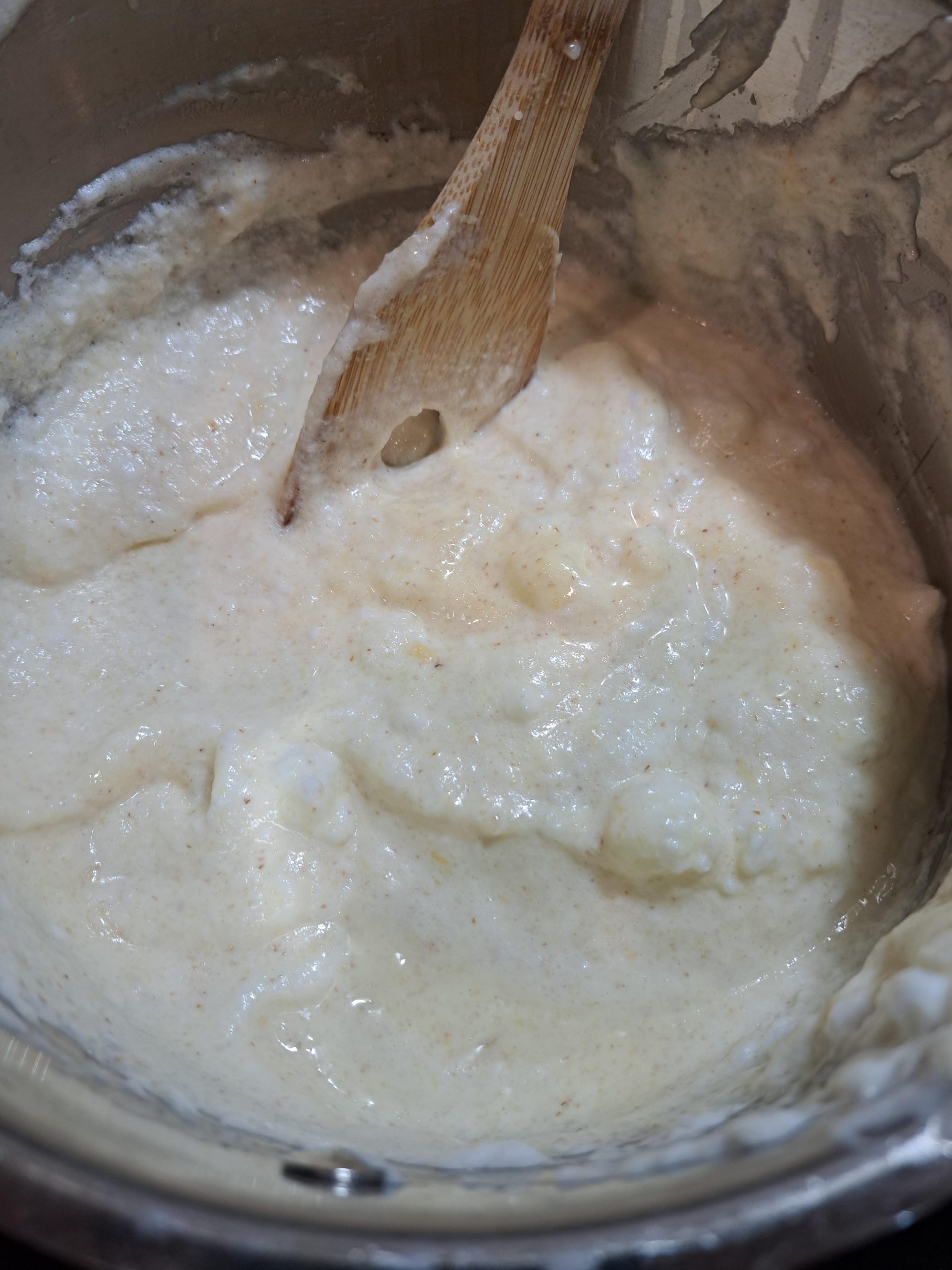
Image source: Reddit
Tapioca pudding made with improperly cooked tapioca pearls can cause food poisoning if not cooked thoroughly, leading to bacterial contamination. Tapioca pearls should be boiled until fully cooked to eliminate any bacteria present and ensure the safety of the pudding. Improper cooking can result in the survival of bacteria.
40.
Homemade fermented foods - our gut might not thank us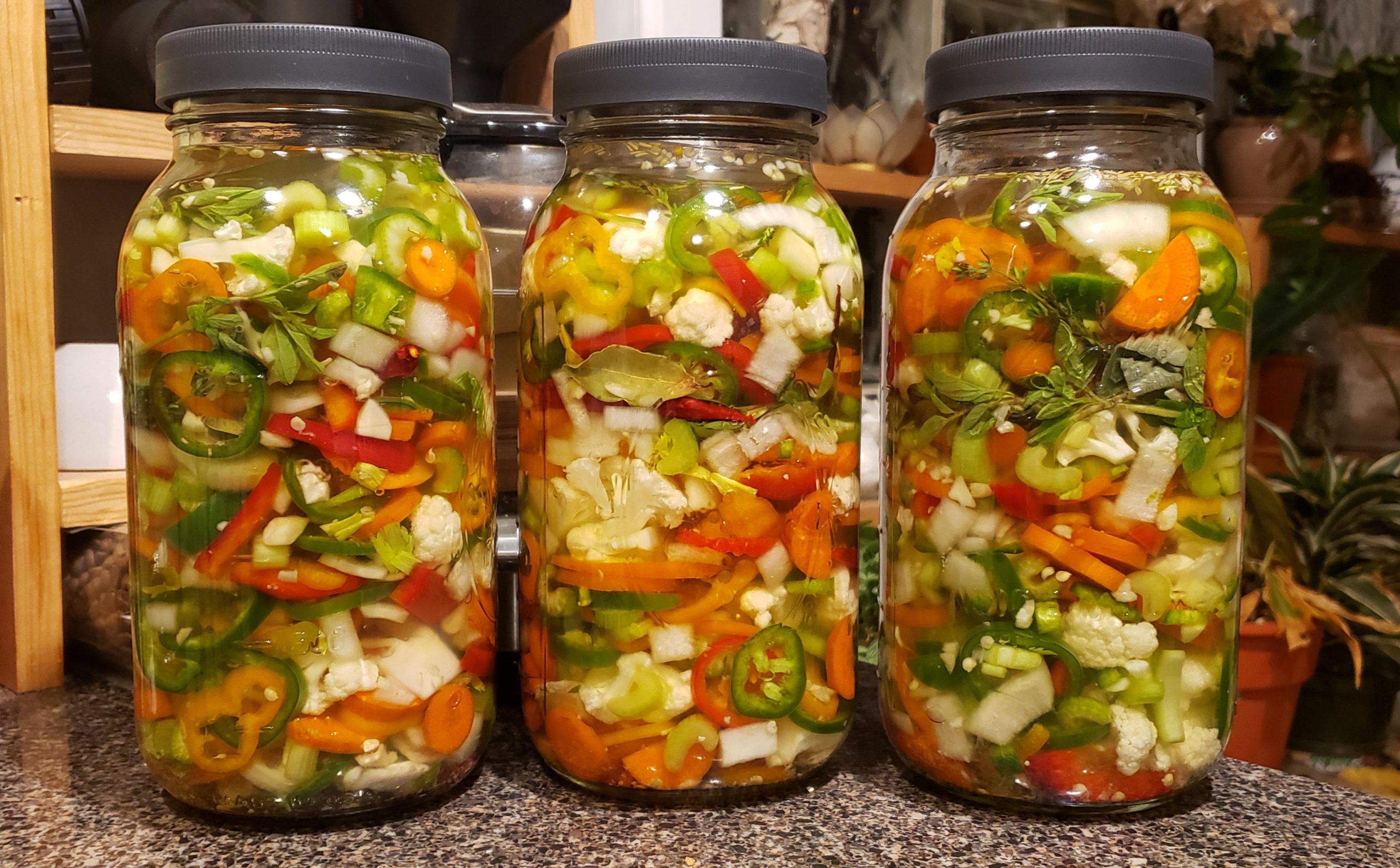
Image source: Reddit
Homemade fermented foods like sauerkraut, kimchi, and kombucha can pose a risk of foodborne illness if not prepared and stored properly. Improper fermentation conditions or contamination during the fermentation process can lead to the growth of harmful bacteria, yeast, or molds. It's important to follow proper fermentation techniques.
41. What you should do if you get food poisoning - Hydrate, hydrate, hydrate!

Image source: Reddit
Dehydration is a common concern with food poisoning due to vomiting and diarrhea. Electrolyte solutions like oral rehydration solutions (ORS) or sports drinks can help replenish lost electrolytes and fluids. Sip fluids slowly if you're having trouble keeping them down.
42. Get plenty rest (you won't feel like moving anyway)

Image source: Reddit
Rest allows your body to focus its energy on fighting off the infection or toxin causing the food poisoning. Avoid strenuous activities and give yourself time to recuperate fully. To be fair, you won't feel like doing anything but lying still and complaining of feeling ill.
43. Keep away from solid food
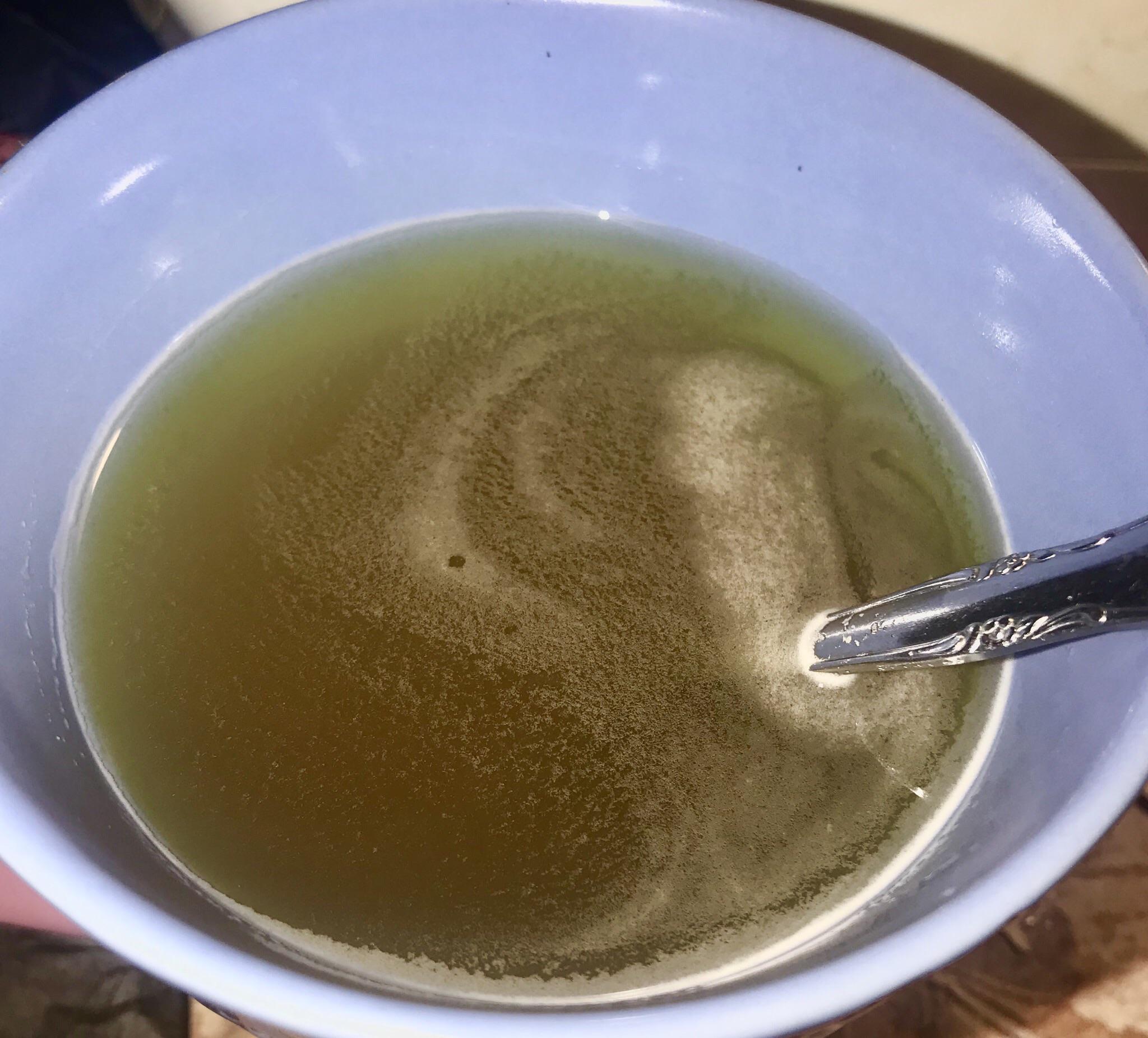
Image source: Reddit
Initially, your stomach may be sensitive, and solid foods can exacerbate symptoms. Stick to clear liquids like water, broth, herbal teas, or electrolyte solutions. As you start feeling better, gradually introduce bland, easily digestible foods like plain rice, boiled potatoes, or bananas.
44. Monitor your symptoms regularly during the day

Image source: Women's Health
Keep track of your symptoms like nausea, vomiting, diarrhea, abdominal pain, fever, and weakness. If symptoms persist, worsen, or if you notice any concerning signs that are worrying you such as blood in vomit or stool, seek medical attention promptly.
45. Over the counter medication may help
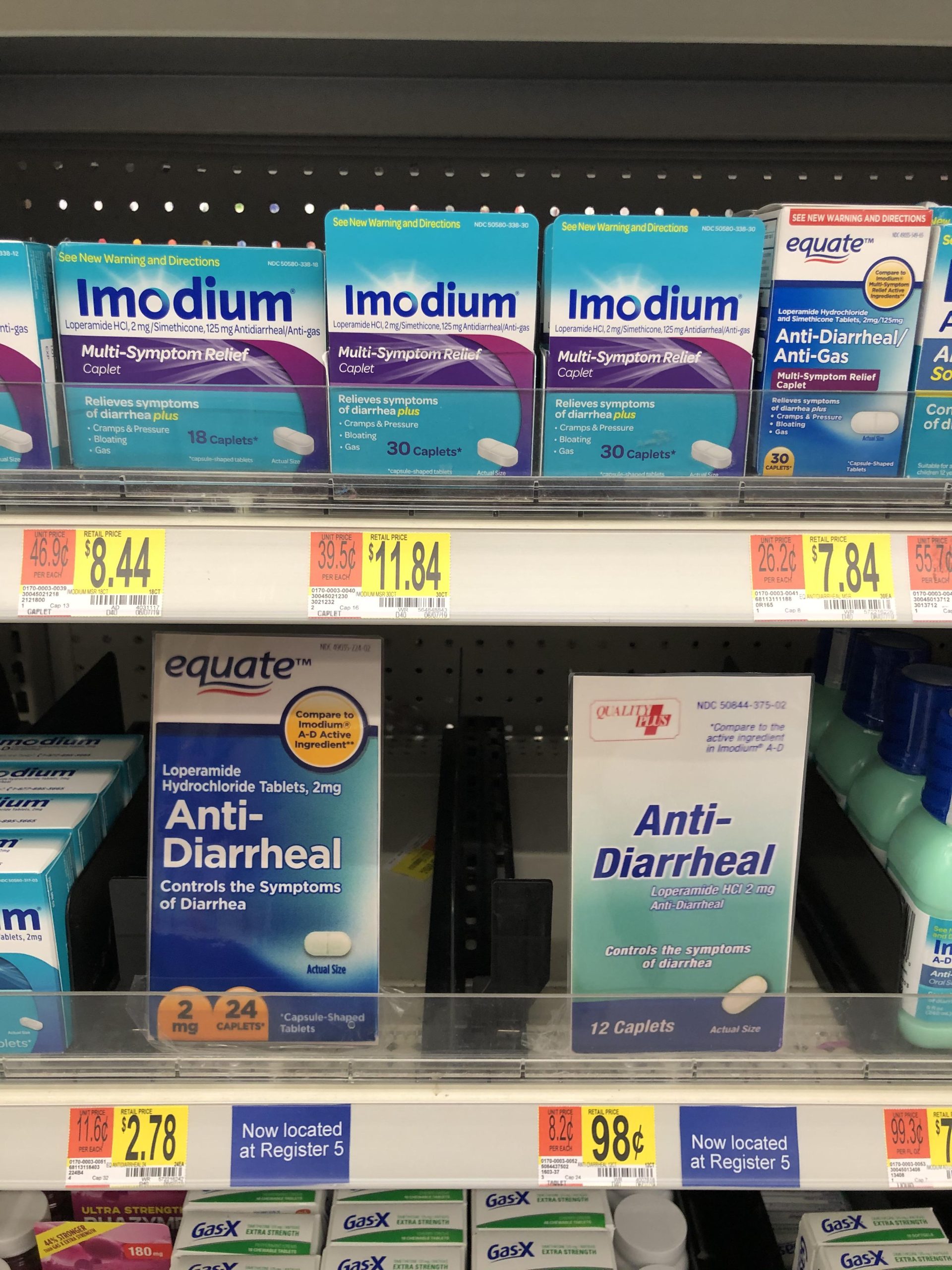
Image source: Reddit
Over-the-counter medications like loperamide (Imodium) for diarrhea or bismuth subsalicylate (Pepto-Bismol) for upset stomach can provide relief for some symptoms. However, be cautious with medications, especially if you have pre-existing health conditions or if you're unsure about their interactions.
46. Stay at home until you're fully recovered

Image source: Reddit
Rest and isolation are crucial not only for your recovery but also to prevent spreading the illness to others. Avoid preparing food for others until you've fully recovered and are no longer contagious. Nothing for it but to sit it out until it leaves your system.
47. Practice good hygiene

Image source: Reddit
Proper hand washing is essential for preventing the spread of foodborne illnesses. Wash your hands thoroughly with soap and water for at least 20 seconds, especially after using the restroom and before handling food or beverages. ALWAYS follow this rule.
48. Avoid certain foods that could irritate your system

Image source: Reddit
Spicy, greasy, and heavy foods can irritate your digestive system further. Instead, opt for really bland foods such as plain crackers, toast, boiled rice, steamed vegetables, and applesauce until your stomach settles. You'll know you're feeling better when you start to feel hungry.
49. Contact your doctor if you have severe symptoms

Image source: Vox
If you're experiencing severe symptoms such as persistent vomiting, diarrhea, dehydration, high fever, or if you're in a high-risk group (e.g., elderly, pregnant, or immunocompromised), seek medical attention promptly. A healthcare provider can assess your condition and provide appropriate treatment.
50. Identify the culprit

Image source: Reddit
Reflect on recent meals to identify the likely culprit of the food poisoning. If you suspect a particular food item or establishment, it's important that inform the relevant health authorities to prevent any further cases and ensure food safety standards are upheld.

 Image source: Reddit
Image source: Reddit









 Image source: Reddit
Image source: Reddit













 Image source: RedditSeafood dishes like ceviche, which typically involve marinating raw fish or shellfish in citrus juices, may not undergo sufficient cooking to kill harmful bacteria and parasites. Consumption of improperly prepared or stored ceviche can lead to foodborne illnesses caused by bacteria, such as Vibrio species, or parasites, such as those causing anisakiasis.
Image source: RedditSeafood dishes like ceviche, which typically involve marinating raw fish or shellfish in citrus juices, may not undergo sufficient cooking to kill harmful bacteria and parasites. Consumption of improperly prepared or stored ceviche can lead to foodborne illnesses caused by bacteria, such as Vibrio species, or parasites, such as those causing anisakiasis.




















